Our Members
A

Degrees: PhD
Position(s): Dr. Adamson is currently a Principal Investigator of the Lunenfeld-Tanenbaum Research Institute of Mount Sinai Hospital, and a Professor in the Department of Obstetrics and Gynecology of the University of Toronto, Toronto, ON, Canada. She holds cross-appointments in the Departments of Pediatrics and Physiology, the Institute of Medical Science, and the Cardiovascular Sciences Collaborative Program and is a member of the Heart and Stroke Richard Lewar Centre of Excellence in Cardiovascular Research at the University of Toronto. She also directs the Mouse Physiology Laboratory of the Centre for Modeling Human Disease in the Lunenfeld-Tanenbaum Research Institute (www.cmhd.ca). Dr. Adamson received her B.Sc. in Biophysics (1977) from the University of Guelph, and her M.Sc. (1980) and Ph.D. (1984) in Medical Biophysics from the University of Western Ontario, London, ON, Canada. Her Ph.D. supervisors were Drs. John E. Patrick and Margot R. Roach. She completed a one year postdoctoral fellowship with Dr. Bryan Richardson at the Lawson Research Institute in London, ON, Canada then, in 1985, she was appointed a Scientist in the Lunenfeld-Tanenbaum Research Institute of Mount Sinai Hospital, Toronto, ON and an Assistant Professor in the Department of Obstetrics and Gynecology at the University of Toronto.
Research: Dr. Adamson’s research focuses on:
– Cardiovascular and placental physiology during pregnancy
– High resolution ultrasound imaging and Doppler assessment in mice
– Evaluation of cardiovascular function in vivo in mice during pre- and postnatal development
– Physiological testing of mutant mice generated by random mutagenesis or other methods
A major goal of our lab is to generate powerful and accessible tools for evaluating physiologic function in genetically-altered mice. We use a state-of-the-art high resolution ultrasound system known as the Ultrasound Biomicroscope to monitor morphology and hemodynamics from implantation to adulthood in mice. Our lab has a longstanding interest in cardiovascular hemodynamic development in general, and in the role of the placenta in controlling maternal and fetal hemodynamic function during pregnancy in particular. All work has ethical approval and is conducted in accordance with the guidelines of the Canadian Council on Animal Care (www.ccac.ca)
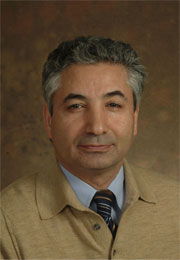
Degrees: PhD, FCACB, DABCC, FACB
Position(s): Division Head, Clinical Biochemistry, Hospital for Sick Children Senior Associate Scientist, Molecular Structure & Function, Hospital for Sick Children Research Institute Professor, Department of Biochemistry and Department of Laboratory Medicine & Pathobiology, University of Toronto
Research:
– Molecular mechanisms of dyslipidemia
– Lipoprotein metabolism
– ApoB gene expression
– Animal models of obesity and insulin resistance
– Hyperlipidemia in insulin resistance and type 2 diabetes
The incidence of insulin resistant states such as obesity and type 2 diabetes have been increasing at an alarming rate in recent years in both paediatric and adult populations. Our research program aims to elucidate the key genetic and environmental factors that link insulin resistance, lipoprotein abnormalities, and cardiovascular disease. We are investigating the underlying cellular and molecular mechanisms of the development of metabolic dyslipidaemia in insulin-resistant states. Using diet-induced animal models of insulin resistance and obesity, we are investigating the link between the insulin signalling pathway and deregulation of hepatic and intestinal lipoprotein metabolism. We also use these models to study the cellular and molecular mechanisms of hypolipidaemic and insulin-sensitizing drugs. Regulation of hepatic and intestinal apolipoprotein B gene expression is also under intense investigation, particularly at the posttranscriptional levels of protein translocation and intracellular degradation.
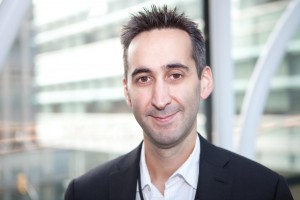
Degrees: BSc MBChB(Hons) PhD FRCP(UK)
Position(s): Assistant Professor/Clinician Scientist and Staff Endocrinologist, St. Michael’s Hospital and University of Toronto
Research: Dr. Advani’s research is focused on the discovery and development of new therapies for the treatment of diabetic kidney disease and its related cardiovascular complications. Studies in the lab span from the generation of bioinformatics methods for novel target discovery; to the elucidation of pathogenetic mechanisms in models of renal and cardiac disease by combining conditional knockout and cell culture approaches; through to the generation of novel molecules that modulate the effects of the pathogenetic mechanisms. Within this framework, specific projects focus on epigenetic mechanisms, the role of podocyte injury in the pathogenesis of glomerular disease and the paracrine communication between podocytes and endothelial cells within the renal glomerulus. To facilitate the translation of his lab’s findings, Dr. Advani is a co-investigator in a number of clinical trials of therapies for people with diabetes.
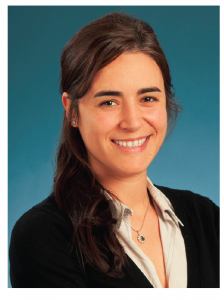
Degrees: MD PhD
Position(s): Clinician-Scientist in the Heart Failure and Transplant Program at the University Health Network. She is a cardiologist from Argentina who completed her training as a clinical fellow in the Heart Failure/Transplant Program at the Toronto General Hospital in Canada supported by the LaSorda Fellowship award. Dr. Alba holds a doctoral degree in Clinical Epidemiology and Biostatistics from the Heath Research Methodology Program at McMaster University, Canada. Her academic research studies were supported by the Vanier Canada Graduate Scholarships Award.
Research: Dr. Alba’s main research interest revolves around adequate prognosis assessment and outcomes in patients with heart failure. Heart failure is an exponentially growing medical and economic problem. One in five people over the age of 40 will develop HF in their lifespan. Mortality in patients with HF is higher than in most cancer patients. Currently, direct and indirect costs of treating HF are approximately 3 billion dollars in Canada. Optimal management of patients with HF is crucial to improve outcomes and reduce costs and depends on adequate assessment of each patient’s mortality risk to decide on appropriate testing and intervention. Accurate estimation of mortality risk in patients with HF is key to guide management and to allow patients and physicians to make informed decisions about the appropriateness of medical plan.
Key words: heart failure, heart transplant, mechanical support, outcomes, prognosis, survival, predictive models, systematic review, meta-analysis.
Likedin: https://www.linkedin.com/in/ana-carolina-alba-9b787069
Reaserchgate: https://www.researchgate.net/profile/Ana_Alba2
Pubmed search string: (Alba AC[Author]) AND Canada[Affiliation]

Degrees: ScD, P.Eng., FAAAS, FASEE, FASME, FCAE, FCSME, FEIC, FIEEE, FRSC, NAE
Position(s): Alumni BioEngineering Professor in Mechanical and Industrial Engineering; Dean of Faculty of Applied Science & Engineering at the University of Toronto
Research: Cristina Amon earned her Mechanical Engineering degree from Simon Bolivar University and her M.S and Sc.D. from MIT in 1988. She joined the University of Toronto in 2006 as Dean of the Faculty of Applied Science & Engineering and Alumni BioEngineering Professor in Mechanical and Industrial Engineering. She is responsible for strategic and visionary leadership of one of the world’s most distinguished Engineering Faculties with over 5000 undergraduate and 2000 graduate students. Prior to UofT, she was the Raymond Lane Distinguished Professor and Director of the Institute for Complex Engineered Systems at Carnegie Mellon University. A pioneer in the development of Computational Fluid Dynamics, her research addresses thermal transport in nanoscale semiconductors, energy systems, and biomedical devices.
Cristina Amon received numerous awards, including ASME Gustus Larson Memorial Award, ASEE Westinghouse Medal and Heat Transfer Memorial Award. She was recognized among Canada’s most Influential Women in 2012, received Ontario’s Most Prestigious Engineering Honour for Public Service, Technical Excellence and Professional Leadership in 2015 and awarded SWE’s and CSME’s highest honours. She was inducted to four academies: Canadian Academy of Engineering, Spanish Royal Academy, Royal Society of Canada and U.S. National Academy of Engineering, elected fellow of all major professional societies in her field, and contributed 350 refereed articles in education and research literature.
Active in professional societies and executive boards, Cristina Amon has served as Founding Chair of the Global Engineering Deans Council, Chair of AAAS Engineering, and President of SWE Pittsburgh; on NSF, NRC and NAE panels and external advisory boards including Stanford, UCLA, UPenn, UIUC and Waterloo.
Research Interests: Fluid dynamics; Nano-scale Transport; Hemodynamics and Mass Transport in Biological Systems with Applications to: Abdominal Aortic Aneurysms, Endovascular Grafts, Intravenous Blood Oxygenators, Lung Perfusion Systems, Fontan Circulation, and Heart Failure in Tetralogy; BioMedical Devices
B
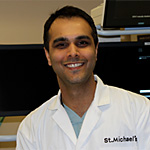
Degree(s): MD
Position(s): Interventional Cardiologist, Assistant Professor of Medicine, University of Toronto
Research: Akshay Bagai is an interventional cardiologist at St. Michael’s Hospital, and Assistant Professor of Medicine at the University of Toronto. He trained in Internal Medicine and Cardiology at the University of Toronto, Interventional Cardiology at St. Michael’s Hospital, and graduated from the Clinical Research Training Program obtaining a Masters degree in Health Sciences from Duke University. He was recently awarded the 2013-14 Heart & Stroke Foundation/University of Toronto Polo Chair in Cardiology Young Investigator Award. His clinical and research interests are closely aligned and include systems of care for acute coronary syndrome and out-of hospital cardiac arrest, adjunctive therapy in coronary syndromes and percutaneous coronary intervention, and revascularization strategies in acute and stable coronary disease.
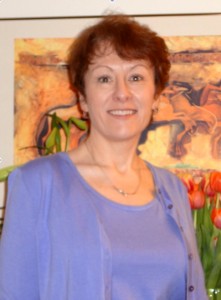
Degrees: PhD
Position(s): Full Professor and Graduate Coordinator, Department of Physiology
Research: The main focus of Dr. Belsham’s laboratory is to understand, at the molecular level, how the hypothalamus achieves its diverse physiological functions. Many of our vital needs, such as those for reproduction, food and drink, sleep, and stress responses, depend on hormonal balance, which is controlled by both external and internal stimuli at the hypothalamic level. The hypothalamus is a small but critical part of the brain which produces a number of peptide releasing factors that in turn control the activities of the pituitary. In order to begin to dissect the molecular signals responsible for the release of specific peptides from individual hypothalamic neurons, her laboratory is currently focusing on the peptide that controls reproduction, gonadotropin-releasing hormone or GnRH. This decapeptide hormone regulates the anterior pituitary gonadotrope cells, which in turn sustain the intricate balance within the feedback loop of the hypotha-lamic-pituitary-gonadal axis. A large number of neuromodulators have been implicated in the control of reproductive function, as they have been found to regulate GnRH synthesis and secretion. Dr. Belsham’s research program studies many aspects of GnRH function, which includes the direct actions of neuromodulators on individual GnRH neurons; the transcriptional mechanisms dictating the neurogenesis of individual hypothalamic neurons; and the development of specific immortalized hypothalamic neuronal cell cultures in order to understand the molecular mechanisms involved in interneuron communication and signaling.
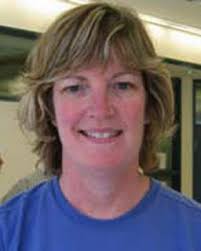
Degrees: PhD
Position(s): Professor, Department of Laboratory Medicine and Pathobiology, Faculty of Medicine, University of Toronto
Research: Research in Dr. Bendeck’s laboratory focuses on the arterial diseases of atherosclerosis and restenosis characterized by injury to the blood vessel wall and on interactions between cells and extracellular matrix during vascular remodeling. This active process of structural alteration involves cell growth, cell death, cell migration, and production or degradation of extracellular matrix. Dr. Bendeck is investigating the mechanisms of vessel wall thickening and remodeling using transgenic mouse models of arterial injury, and by studying the role of extracellular matrix, cell-surface integrin receptors, the novel discoidin-domain receptors and special tissue repair enzymes known as MMPs in mediating smooth muscle cell responses. She and her team are also studying the effect of high glucose and insulin on smooth muscle cell growth and vessel remodeling in atherosclerosis. Dr. Bendeck is an internationally recognized expert in these areas, and has played a leading role in organizing international vascular biology conferences on these topics.
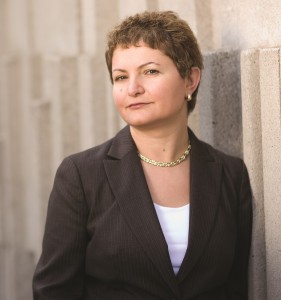
Degrees: MD, PhD
Position(s): Assistant Professor, Department of Medicine, University of Toronto, Scientist – Toronto General Research Institute
Research: Dr. Billia’s group is interested in elucidating the molecular mechanisms involved in the development of heart failure, a ever-increasing socio-economic burden on our health care system. They are particularly interested in genetic models of human cardiovascular disease, utilizing both transgenic and knockout technology and are interested in studying the regulation of cell cycle regulation in cardiomyocytes to better understand and define mechanisms for innate cardiac regeneration. To this end, they have begun to study the role of tumor suppressor genes in the heart and in particular in cardiac regeneration.
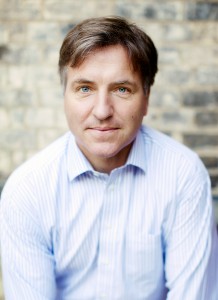
Degrees: MD, PhD
Position(s): Associate Professor, Department of Physiology
Research: In February 2006, the Heart & Stroke/Richard Lewar Centre of Excellence recruited Dr. Steffen-Sebastian Bolz as an Associate Professor from the Institute of Physiology at the Ludwig Maximilians University in Mu nich. He has since been embraced by the Canadian scientific establishment as an investigator at the cutting edge of his field. Dr. Bolz is a highly innovative researcher with widely recognized expertise in microvascular research and a special focus on resistance arteries. Resistance arteries are highly specialized structures. Their circularly orientated smooth muscle cells allow for rapid changes in vessel diameter and thus alterations in microvascular resistance and capillary perfusion. The ability of resistance arteries to adapt microvascular resistance to changes in systematic blood pressure is key to the autoregulation of blood flow. Despite its importance in physiological and pathophysiological processes, our knowledge of resistance artery physiology is relatively limited. Dr. Bolz’s unique expertise and pioneering methods promise to boost that knowledge substantially. He has also forged important collaborations within the Department of Physiology as well as other departments (Engineering, Medicine), which will further ensure his scientific leadership in both basic and applied microvascular science. Dr. Bolz’s rigorous attention to efficiency, simplicity, and applicability lend a particular rigour to his research and drive his scientific development.
C
Position(s): Associate Professor, Department of Medicine
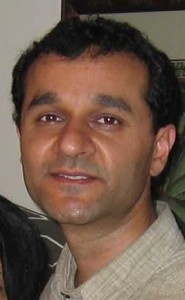
Degrees: MD, FRCPC
Position(s): Associate Professor, Department of Medicine
Research: Ventricular tachyarrhythmias are an important mode of sudden death in patients with cardiomyopathy. Animal studies suggest that abnormal ventricular repolarization can lead to ventricular arrhythmias. In humans, the relevance of cardiac repolarization as a substrate for arrhythmogenesis is not well understood. Dr. Chauhan’s laboratory is characterizing the spatiotemporal distribution of ventricular repolarization in patients with cardiomyopathy and defining the dynamic range of repolarization in response to physiologic stress that can trigger ventricular arrhythmias. The experiments involve body surface and intracardiac recordings of repolarization under varying physiological conditions. Using linear and nonlinear dynamics, several aspects of cardiac repolarization are quantified including spatiotemporal heterogeneity, restitution, memory and alternans. The knowledge gained from our experiments will provide better understanding of the pathogenesis of lethal ventricular arrhythmias in cardiomyopathic patients which may lead to the development of novel antiarrhythmic therapies.
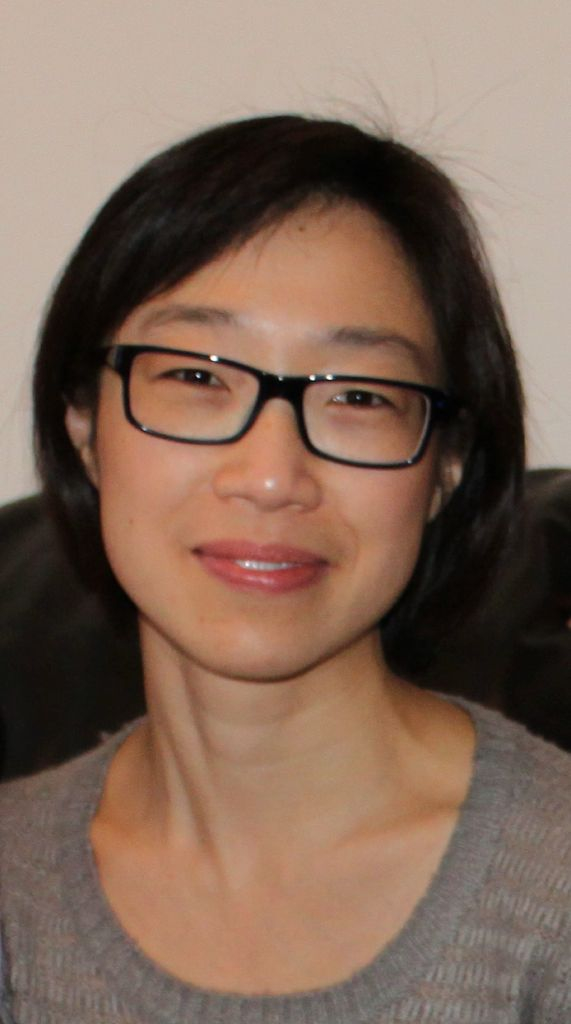
Degrees: PhD
Positions: Assistant Professor, Institute of Biomaterials & Biomedical Engineering, The Edward S. Rogers Sr. Department of Electrical & Computer Engineering, University of Toronto; Scientist, Translational Biology & Engineering Program, Ted Rogers Centre for Heart Research
Research Focus: Cardiac MR imaging, stem cell therapy monitoring, cardiac regeneration, endothelial dysfunction, fibrosis
Research: Dr. Cheng’s laboratory is focused on fundamental advances in magnetic resonance imaging (MRI) to enable cutting-edge applications in microvascular and cardiovascular imaging and regenerative medicine. Dr. Cheng is a world-recognized expert in the field of quantitative microvascular imaging, having contributed substantially to robust functional characterization of the smallest blood vessels in our body, and, more recently, established a non-invasive imaging method to assess microvascular dysfunction. In addition to imaging technologies for tissue characterization, her lab is also developing novel MR contrast mechanisms and contrast agents for cellular and molecular imaging in vivo. She has a strong interest in heart failure and is working on novel approaches for early detection and diagnosis, as well as new avenues for treatment that include stem-cell therapy and tissue engineering.
Position(s): Assistant Professor of Medicine, University of Toronto; Scientist, Toronto General Hospital Research Institute; Clinician Scientist, University Health Network, University of Toronto
Research: Dr. Cherney’s research is focused on renal physiology in humans, endothelial function, arterial stiffness, heart rate variability,and diabetic nephropathy
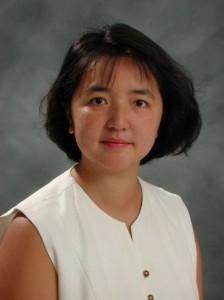
Degrees: MD, PhD, FRCP(C)
Position(s): Associate Director, Women’s Health Program, University Health Network, Associate Professor, Departments of Medicine, Public Health Sciences, and Health Policy, Management and Evaluation, University of Toronto Director of University Health Network Osteoporosis Program Director of Centre of Excellence in Skeletal Health Assessment (CESHA)
Research: Dr. Cheung’s research interests are in the area of postmenopausal osteoporosis, especially in prevention and early diagnosis, and evaluation of new therapies and technologies. She has approximately 100 publications in peer-reviewed medical journals and has held peer-reviewed grants from CIHR, Physicians’ Services Incorporate (PSI), International Society of Clinical Densitometry (ISCD), National Cancer Institute of Canada (NCIC) and the Heart and Stroke Foundation of Canada (HSFC). She is a frequent speaker on osteoporosis, and has presented widely at national and international scientific meetings. She worked with Osteoporosis Canada and the Canadian Task Force for Preventive Health Care on the 2002 and 2004 osteoporosis guidelines. She is currently the chair for the Osteoporosis Canada Scientific Advisory Council Research Committee, and the Canadian Bone Strength Working Group, and is the co-chair for the 2009 CIHR Institute of Musculoskeletal Health and Arthritis Canadian Bone Consensus Conference.
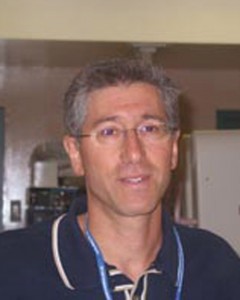
Degrees: MD, FRCPC
Position(s): Director, Cardiac Catheterization Laboratory, Sunnybrook & Women’s College Health Sciences Centre; Associate Professor, Department of Medicine, University of Toronto.
Research: Dr. Cohen’s research is focused in the area of interventional cardiology including adjunctive pharmacotherapy; evalulation of new interventional devices; and outcomes and cost-effectiveness of percutaneous revascularization.
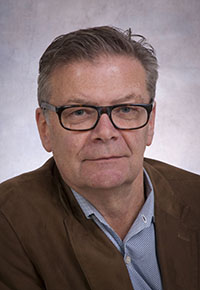
Degrees: MD
Positions: Surgeon-Scientist, Professor
Research Focus: Cardiac Stem Cells; Cardiac Fibrosis; Drug Screening
Research: Our research studies are directed towards understanding the molecular biology of hypertrophy which occurs in congenital heart disease. We are specifically focused on signaling cascades which promote beneficial compensatory cardiac hypertrophy. Our lab is also focused on the characterization of cardiac-progenitor cells resident within the heart in congenital heart disease. Both areas of study involve mouse models of cardiac hypertrophy and parallel analysis of clinical samples exhibiting various degrees and types of hypertrophy.
Position(s): Assistant Professor, Department of Medicine
Research: Dr. Connelly is a clinician scientist and staff physician at St Michael’s Hospital where his clinical responsibilities involve echocardiography and cardiac MRI. His basic science laboratory is involved in exploring mechanisms of diabetic complications, principally diastolic heart failure and developing novel therapeutic strategies to treat this. Dr. Connelly also collaborates closely with the Sunnybrook Health Sciences Centre in elucidating the role of real time cardiac metabolism in the pathogenesis of post MI remodeling, and developing novel MR techniques to enable non-invasive tissue characterization.
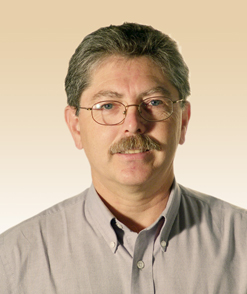
Degrees: PhD
Position(s): Associate Professor of Laboratory Medicine and Pathobiology and Medicine University of Toronto Director, J. Alick Little Lipid Laboratory, Scientist in the Keenan Research Centre of the Li Ka Shing Knowledge Institute of St. Michael’s Hospital
Research: Dr. Connelly’s current research involves 1) the role of paraoxonase-1 in anti-inflammatory eicosanoid metabolism; 2) studies of cytokines and adipokines, notably adiponectin, in heart disease, diabetes and the complications of diabetes, and these studies involve three cohorts: a Native Canadian population, women with gestational diabetes, and kidney transplant recipients.
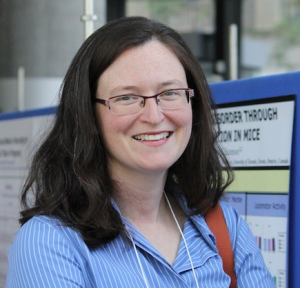
Degrees: PhD, BSc
Position(s): Associate Professor, Faculty of Pharmacy
Research: Dr. Carolyn Cummins completed her undergraduate degree in chemistry at McGill University (Montreal, Quebec) and her Ph.D. in pharmaceutical chemistry at the University of California San Francisco with Dr. Leslie Z. Benet. During her postdoctoral training at the University of Texas Southwestern Medical Center with Dr. David Mangelsdorf, she gained molecular biology, in vivo biology, and receptor pharmacology experience in the area of nuclear hormone receptors. Dr. Cummins is currently an Associate Professor in the Faculty of Pharmacy at the University of Toronto. Her independent research program is interdisciplinary and focuses on the study of nuclear hormone receptors in diabetes and diabetic complications using a combination of methodologies including analytical chemistry, cell and molecular biology, epigenetics and small animal pharmacology. Her most recent studies have focused on the study of the Liver X Receptor (LXR) and Glucocorticoid Receptor (GR) in these contexts. She is a recent recipient of an Early Researcher Award from the Government of Ontario and a New Investigator Award from the Canadian Institutes of Health Research and her research is funded by CIHR, NSERC and HSFC.

Degrees: MD
Position(s): Professor, Department of Laboratory Medicine and Pathobiology, University of Toronto, Pathologist, Toronto General Hospital, University Health Network Senior Scientist, Toronto General Research Institute.
Research: Dr. Cybulsky’s laboratory’s research focus is on the functions of endothelial cell and leukocyte adhesion molecules in leukocyte emigration during inflammation and atherosclerosis, with the primary focus being on vascular cell adhesion molecule-1 (VCAM-1) and its ligand – alpha4 integrin. VCAM-1 knockout and a series of VCAM-1 mutant mice were produced. VCAM-1 knockout mice revealed a key role of VCAM-1 in placental development, but died during embryonic development. VCAM-1 mutant mice have reduced expression of VCAM-1, thus allowing the study of VCAM-1 in adults. Other research projects study the mechanisms of modulating leukocyte integrin affinity versus avidity on various steps of leukocyte recruitment from blood into tissues and the mechanisms of atherosclerotic lesion formation, such as the role of NF kappa B signal transduction in endothelium at different sites of the arterial tree.
D
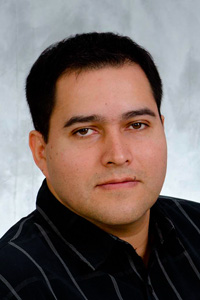
Degrees: PhD
Position(s): Assistant Professor, Department of Molecular Genetics, University of Toronto; Scientist, Physiology & Experimental Medicine, The Hospital for Sick Children
Research: Understanding how the cardiovascular system develops and maintains its function is critical. Cardiac disease is the leading cause of mortality in adults and the primary cause for morbidity. Furthermore, congenital heart disease affects one per cent of newborns. Recent research showed that epigenetic mechanisms like histone methylation operating very early during cardiovascular progenitor development might not only regulate aspects of cell differentiation and morphogenesis, but are also required for long-term cardiac homeostasis and response to pathologic stimuli in the postnatal life. This stresses the relevance of uncovering the functions of histone methylation and other epigenetic processes in cardiovascular development and maintenance to act effectively against congenital and postnatal disease.
Dr. Delgado-Olguin’s laboratory uses in vivo and in vitro approaches to uncover the mechanistic involvement of several histone modifiers in cardiovascular development and maintenance. We use a variety of approaches ranging from analyzing the cardiac and vascular morphology in mutant models, to uncovering the cellular and molecular events controlling cardiovascular differentiation, organogenesis and maintenance.
Position(s): Assistant Professor in the Division of Cardiology and Cardiac Transplantation at the University Health Network
Research: Dr Diego Delgado graduated in Medicine from the Universidad del Salvador in Buenos Aires, Argentina. He completed his Internal Medicine and Cardiology training in Hospital Espanol in Buenos Aires. Subsequently he completed a research fellowship in cardiac transplantation at Rush Presbyterian St Luke’s Medical Center in Chicago, US. He completed a research/clinical fellowship in heart failure and transplantation at the Toronto General Hospital. Currently, Dr Delgado is Assistant Professor in the Division of Cardiology and Cardiac Transplantation at the University Health Network. He is the author of publications in the area of transplantation and mechanical assist devices. His interests are immunologic aspects of heart failure and transplantation. He completed his Maters in Clinical Epidemiology at the University of Toronto. He is the Past-Chair of the Canadian Cardiac Transplant Group. He is the Director of the Heart Failure Clinical Trials Group at the University Health Network. Dr. Delgado is the current Vice-President for Northamerica of the Interamerican Society of Cardiology.
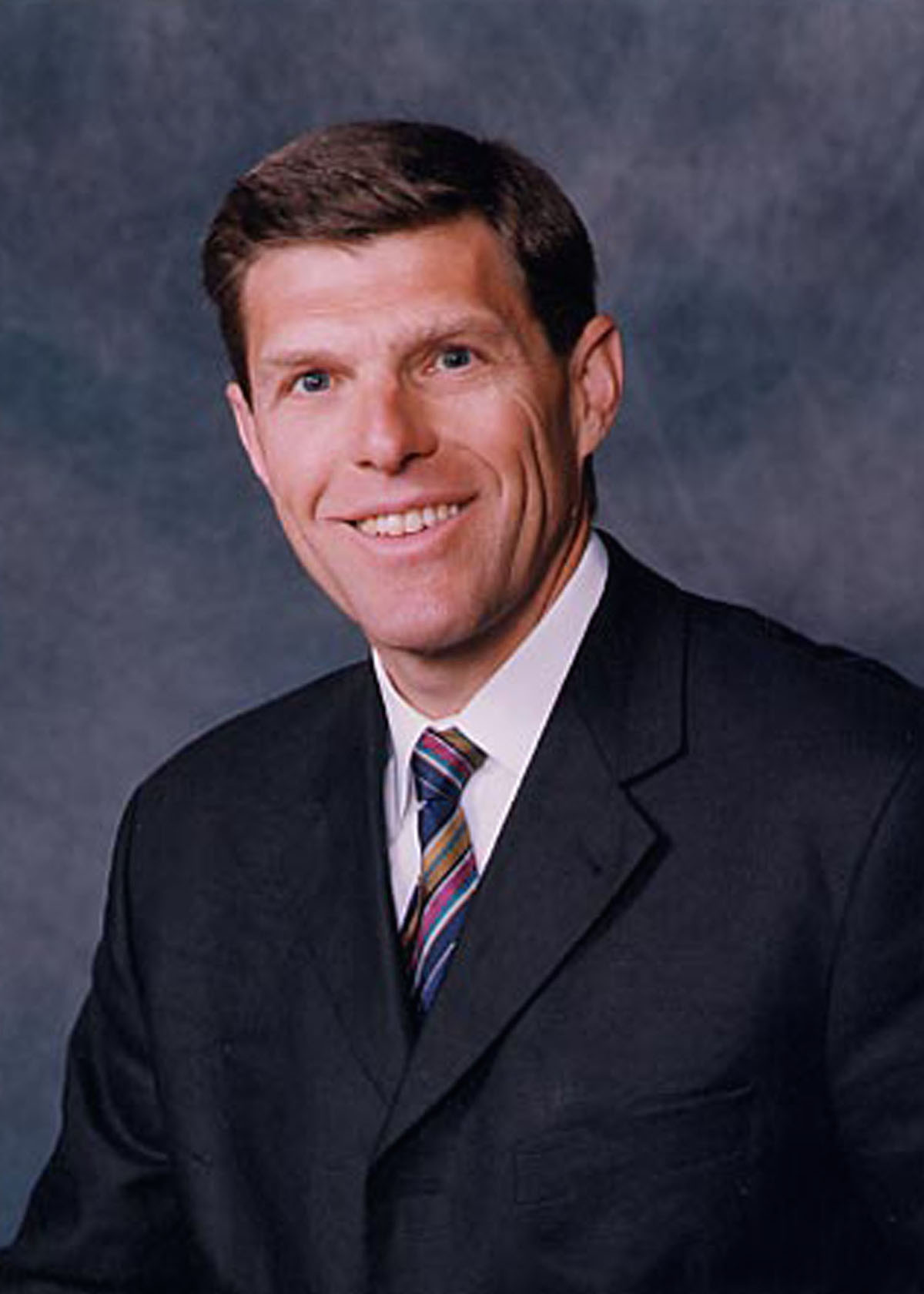
Degrees: MD, MSc, FRCPC
Position(s): Staff, Division of Cardiology, Department of Medicine, St. Michael’s Hospital, Chief of Electrophysiology, St. Michael’s Hospital. Scientist in the Keenan Research Centre of the Li Ka Shing Knowledge Institute of St. Michael’s Hospital Professor, Medicine and Cardiology, St. Michael’s Hospital, University of Toronto
Research: Dr. Dorian is currently the interim Department Division Director of Cardiology at the University of Toronto and Professor of Medicine in the Division of Cardiology and in the Division of Clinical Pharmacology at the University of Toronto. Dr. Dorian received his medical degree from McGill University in Montreal in 1976. He continued training in Internal Medicine and Cardiology at the University of Toronto, and received certification by the Royal College of Physicians and Surgeons of Canada in Internal Medicine in 1983 and certification in Cardiology in 1984. He completed training in Clinical Pharmacology at the University of Toronto in 1982, and received an MSc in Pharmacology from the University of Toronto in 1982. From 1983 to 1985, he completed a Fellowship in Cardiac Electrophysiology at Stanford University Medical Centre in California.
Dr. Dorian’s research interests include basic science research in advanced cardiac life support, ventricular fibrillation, defibrillation, the clinical pharmacology of antiarrhythmic drugs, and clinical research on implanted devices, antiarrhythmic drugs, and quality of life in patients with arrhythmias. He has recently completed a clinical trial in out of hospital cardiac arrest and continues collaborative trials in prehospital care and resuscitation.

Degrees: MD, FRCPC
Positions: Professor of Medicine, Senior Investigator, Clinician-Scientist
Research Focus: Cardiovascular, Metabolism, Nutrition
Research: Dr. Drucker’s lab is internationally renowned not only for his research, but as an environment where the clinical relevance of scientific breakthroughs is pursued. His lab has carried out basic science supporting the development of two new classes of therapies for the treatment of type 2 diabetes and a new therapy for patients with short bowel syndrome requiring parenteral nutrition. His research also shows tremendous promise for the treatment of obesity.
Dr. Drucker studies a family of hormones produced in the pancreas, gastrointestinal tract and brain. Controlling blood glucose and insulin secretion, these hormones also regulate our appetite, the absorption of nutrients from the food we eat, and the conversion of those nutrients to energy. In his lab, Dr. Drucker studies the action of hormones that regulate multiple aspects of metabolism. Since enhanced gut hormone action may be beneficial in diabetes, obesity and inflammatory bowel disorders, these hormone analogues have potential to lead to new treatments for diseases that afflict millions of people worldwide.
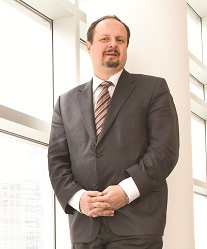
Degrees: MD
Position(s): Professor of Medicine, Division of Cardiology, University Health Network and Mount Sinai Hospital University of Toronto Director, Cardiac Catheterization Laboratories and Interventional Cardiology, University Health Network The Brompton Professorship in Interventional Cardiology
Research: Early in his research career, Dr. Vladimír Džavík’s and his mentor set out to test the late open artery hypothesis. He designed and obtained funding for a study entitled “The Total Occlusion post Myocardial Infarction Intervention Study” (TOMIIS). Due to interventional techniques at the time, it was recognized that the theory would be difficult to test properly on a large scale, but the introduction of stents to the practice of interventional cardiology led to the hypothesis that better long-term outcomes could be achieved. In 1994, Dr. Dzavik organized a workshop that led to the first randomized trial of stenting in patients with occluded arteries – a 410-patient trial showing that stenting indeed significantly reduced reocclusion, which led to a renewed effort to test the late open artery hypothesis. He then organized a larger trial to test the effect of late percutaneous coronary intervention in patients with persistent occluded coronary arteries after myocardial infarction on left ventricular function and remodeling. The study has had an impact on clinical management of patients and extended long-term follow-up is now taking place on this patient population. Dr. Dzavik is also interested in the plight of patients with acute myocardial infarction complicated by shock. In testing the effect of early mechanical revascularization on mortality in cardiogenic shock patients, the trial he was a part of found that early revascularization significantly improves survival. This led directly to changes in the American Heart Association/American College of Cardiology Guidelines for management of patients with acute myocardial infarction. He has continued to investigating the broad area of myocardial function and metabolism, demonstrating the feasibility of conducting large scale clinical trials of pharmacological agents in patients – key to future investigations and testing.
E
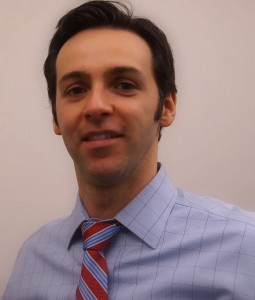
Dr. Epelman completed his MD / PhD at the University of Calgary. He went on to finish his internal medicine residency at the Cleveland Clinic, his general cardiology fellowship at Baylor College of Medicine, and then he completed additional clinical cardiology/echocardiography / research training at Washington University in St Louis. His research program is focused on examining the role of innate immune cells in cardiovascular disease in both patients and in animal models of cardiac injury. He is also an active cardiologist at the Toronto General Hospital
F
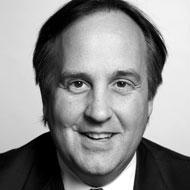
Degrees: MD, FRCPC, MSc, FACC, FAHA
Position(s): Director of the Heart and Stroke Richard Lewar Centres of Excellence in Cardiovascular Research; Associate Professor of Medicine, University of Toronto
Research: Research Interests: Synapse formation, synaptic physiology, and voltage-dependent calcium channels At the mature synapse, the presynaptic voltage-dependent calcium channels co-localize with synaptic elements at the active zone. However, the mechanisms underlying development of presynaptic architecture during synapse formation are largely unknown. Since synaptogenesis between identified pre- and postsynaptic neurons in a mammalian system is often difficult to study at a single cell level, Dr. Farkouh’s laboratory uses Lymnaea synapse to determine cellular and molecular mechanisms by which voltage-dependent calcium channels and synaptic structural proteins are targeted to specific synaptic sites during synapse formation and synaptic plasticity. His lab will subsequently test whether the mechanisms in invertebrate neurons are also conserved in vertebrate systems. Dr. Farkouh is also studying the molecular determinants of the presynaptic calcium channel functions and modulation. The main experimental approaches used in our laboratory include patch clamp recordings, optical imaging, cell culture, immunocytochemical, and molecular biological techniques.
Dr. Farkouh is the Chair and Director of the Peter Munk Centre of Excellence in Multinational Clinical Trials at the Peter Munk Cardiac Centre and Chair of Cardiology Research at the University of Toronto. He is a fellow of The Royal College of Physicians and Surgeons of Canada and a Diplomate of the American Board of Internal Medicine and hold an MSc in Clinical Epidemiology from McMaster. Dr. Farkouh completed his internal medicine and cardiology training at the Mayo Clinic, McMaster University and Mount Sinai School of Medicine. He has published over 100 papers in topics from acute coronary syndromes to cardiovascular prevention. He has mentored many fellows and is active in teaching clinical research methodology.
Dr. Farkouh is internationally known for his work on the management of acute coronary syndromes in the emergency room having developed the concept of comprehensive chest pain units. He has a special interest and expertise in the field of cardiovascular disease in diabetic patients.
He is currently the project officer for numerous clinical trials on questions related to diabetes and heart disease including 2 RO1 Grants from the NIH (FREEDOM Trial and FREEDOM Imaging) and coordinates clinical studies in Grenada and Colombia. He directs a network of multimodal imaging centers that focus on developing novel anti-atherosclerosis compounds. Dr. Farkouh has received the gold medal from John Paul II Hospital in Krakow, Poland and was the Teacher of the Year at the Mayo Clinic.

Degrees: PhD, MD, MSc
Position(s): Associate Professor, Deptartment of Physiology, University of Toronto
Research: Research Interests: Synapse formation, synaptic physiology, and voltage-dependent calcium channels at the mature synapse, the presynaptic voltage-dependent calcium channels co-localize with synaptic elements at the active zone. However, the mechanisms underlying development of presynaptic architecture during synapse formation are largely unknown. Since synaptogenesis between identified pre- and postsynaptic neurons in a mammalian system is often difficult to study at a single cell level, Dr. Feng’s laboratory uses Lymnaea synapse to determine cellular and molecular mechanisms by which voltage-dependent calcium channels and synaptic structural proteins are targeted to specific synaptic sites during synapse formation and synaptic plasticity. The lab will subsequently test whether the mechanisms in invertebrate neurons are also conserved in vertebrate systems. We are also studying the molecular determinants of the presynaptic calcium channel functions and modulation. The main experimental approaches used in Dr. Feng’s laboratory include patch clamp recordings, optical imaging, cell culture, immunocytochemical, and molecular biological techniques.

Degrees: PhD
Position(s): Assistant Professor, Department of Laboratory Medicine and Pathobiology, University of Toronto Scientist, Division of Cellular & Molecular Biology, Toronto General Research Institute (TGRI)
Research: Blood vessels play a prominent role in various human pathologies, including cancer, where the growth of new blood vessels allows for continued tumour growth, and various retinopathies where uncontrolled pathological vascular growth precludes normal vision. However, new vessel growth is crucial for regenerative processes such as wound healing. Unfortunately, natural regenerative vascular growth is often insufficient to heal the catastrophic damage that occurs following a severe acute ischemic insult (such as a myocardial infarction). Increased understanding of the molecular mechanisms governing blood vessel development is crucial to innovation in therapies that either dampen pathological, or promote physiological, vascular growth. Dr. Fish’s research program is focused on determining the molecular mechanisms that direct the specification of endothelial cells that line blood vessels (vasculogenesis), and that control the formation and growth of new blood vessels (angiogenesis).
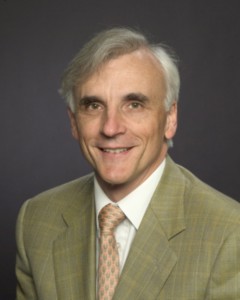
Degrees: MD, DPhil, FRCPC, FACC, LMCC
Position(s): Professor, Department of Medicine, University of Toronto Director of Research, University Health Network and Mount Sinai Hospital Division of Cardiology Senior Scientist, Toronto General Research Institute
Research: Dr. John Floras is a Canada Research Chair in Integrative Cardiovascular Biology and a Career Investigator of the Heart & Stroke Foundation of Ontario. He leads a highly productive research laboratory focused on identifying and modifying mechanisms responsible for the initiation and progression of cardiac and vascular disease, specifically with regards to neural regulation. It attempts to gain new insights into normal and abnormal circulatory regulation leading to the development of novel approaches to counter or prevent debilitating conditions as diverse as heart failure, high blood pressure, and kidney failure. His methods have been used in productive collaborations to dismantle traditional barriers to interdisciplinary patient-oriented research and to uncover the mechanisms involved in cardiovascular disease.
His approach to integrative cardiovascular biology is unique within Canada. Dr. Floras was the first in this country to study the cardiovascular intranet directly in conscious humans, by recording from sympathetic nervous impulses that were generated by the brain and directed at blood vessels, causing them to constrict and raise blood pressure. His laboratory is one of the few in the world equipped to measure simultaneously a broad spectrum of factors such as blood pressure, heart rate, sympathetic nerve firing and arterial diameter. He has used imaging methods to quantify the pumping action of the heart and the dilation and contraction of major arteries, and mathematical tools to discriminate between the accelerator and braking functions of these nerves on the heart’s pacemaker. In addition, he carried out calculations of organ exposure to the nerves’ transmitters and took measurements of circulating hormones that regulate heart function and blood vessel tone.
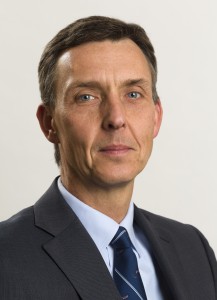
Degrees: MD, FRCSC, FACS
Position(s): Professor of Surgery and Chair of the Division of Vascular Surgery at the University of Toronto
Research:
Dr. Forbes is Professor of Surgery and Chair of the Division of Vascular Surgery at the University of Toronto since 2014. He is also the co-Program Director of the Advanced Aortic Surgery Fellowship at the University of Toronto, a unique collaborative fellowship between vascular and cardiac surgery in open and endovascular therapies for thoracoabdominal aortic pathologies. Previously he was Chair/Chief of the Division of Vascular Surgery at the University of Western Ontario (2005-2014) and Graduate Program Chair of the Masters of Science in Surgery program. He is currently an Associate Editor of the Journal of Vascular Surgery, the Past-President of the Canadian Society for Vascular Surgery, Section Editor of Rutherfords Textbook of Vascular Surgery and the Chair of the Vascular Care Working Group of the Cardiac Care Network. He is also the former vice-Chair of the Vascular Surgery Specialty Committee of the Royal College of Physicians and Surgeons of Canada.
Clinical Interests: all aspects of vascular surgery, including endovascular therapy of the thoracoabdominal aorta, carotid artery surgery, peripheral vascular surgery, dialysis access
Academic Interests: stent graft design, biomechanics, simulation and development of endovascular technology, clinical outcomes and learning curve analysis, spinal cord complications of thoracoabdominal aortic surgery
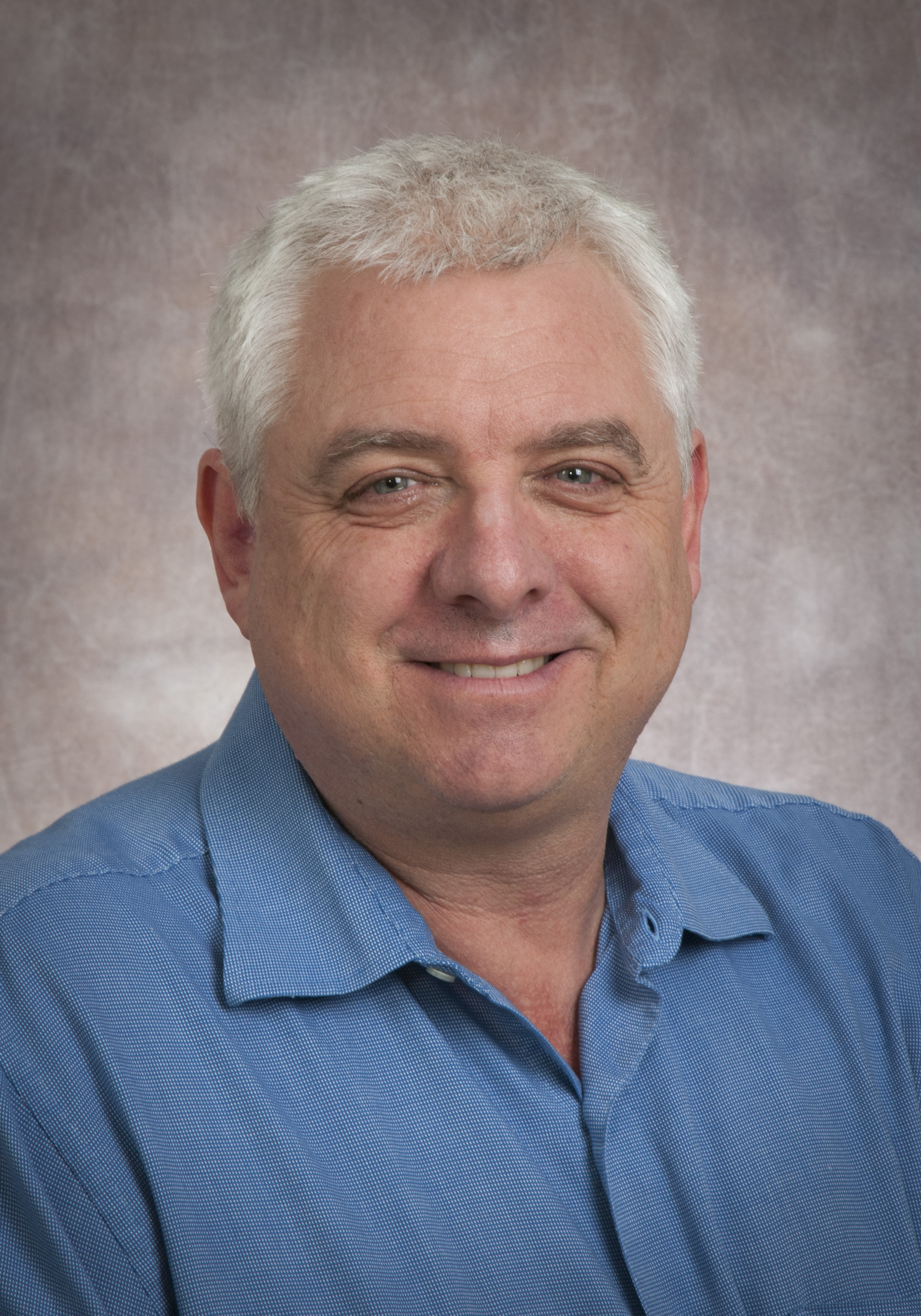
Degrees: MD
Positions: Surgeon-Scientist, Professor
Research Focus: Cardiac Stem Cells; Cardiac Fibrosis; Drug Screening
Research: Dr. Friedberg’s research interests are in the assessment of ventricular function in children and in the use of new echo technologies, including strain and strain rate. In synergy with his clinical research, he runs a translational research program investigating mechanisms of ventricular‐ventricular interactions in pulmonary hypertension and right ventricular pressure‐loading; and the potential to harness them for therapeutic benefit.
Dr. Friedberg obtained his medical degree from Ben‐Gurion University of the Negev in Israel. He
specialized in pediatrics in Israel and then sub‐specialized in pediatric cardiology and advanced imaging at the Lucile Packard Children’s Hospital in Stanford, California, USA.
Dr Friedberg has been on staff as a Paediatric Cardiologist at the Hospital for Sick Children since 2006. He is an Associate Professor of Paediatrics at the University of Toronto and an Associate Scientist at the SickKids Research Institute. He is currently Director of Echocardiography Research in the lab at the Hospital for Sick Children. He is also a member of the editorial board of the Journal of the American Society of Echocardiography and Echocardiography: Research and Practice.
G
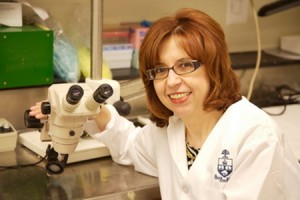
Degrees: PhD, MD
Position(s): Professor, Department of Physiology, University of Toronto Platform Head, Endocrine and Diabetes Platform
Research: The primary theme of Dr. Giacca’s research is the investigation of the effects of excess circulating energy substrates, in particular free fatty acids, on insulin action, secretion and kinetics, and the implication of these effects for the pathogenesis of diabetes. Secondary themes of research are the studies of the effects of nutrient and insulin excess on : i) the proliferation of normal and tumorous colonic epithelial cells; ii) atherosclerosis and restenosis in animal models. Dr. Giacca’s work is on the role of energy excess in causing type 2 diabetes, atherosclerosis and cancer. She is working on the hypothesis that energy excess leads to these diseases through similar mechanisms which involve oxidative stress and inflammation. Her laboratory uses infusions of glucose and fat in rat and mouse models to determine the mechanisms whereby excess nutrients oppose the action of insulin and stress the pancreatic beta cell producing insulin, which ultimately causes diabetes. This is to identify targets to prevent and treat type 2 diabetes. She is also addressing the effects of glucose and fat, and insulin on atherosclerosis and cancer.
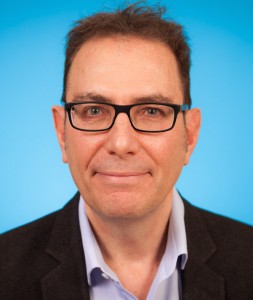
Degrees: MBBS (MD) PhD FRCPC
Position(s): Professor, Canada Research Chair, Clinician Scientist and Head of Endocrinology St. Michael’s Hospital, University of Toronto
Research: Richard Gilbert’s laboratory focuses on the treatment and prevention of cardio-renal disease, exploring fundamental pathophysiological mechanisms as a prelude to developing new, effective treatments that can be translated into the human setting. An active wet bench laboratory explores and develops new therapies for heart and kidney failure and analyses complex gene expression and epigenetic processes in human biopsies as part of a multi-centre program. Moving our laboratory-based studies to humans we are about to embark on a first-in-human study that will examine the safety and efficacy of ‘rejuvenated stem cells’ in patients with rapidly progressing diabetic cardio-renal disease.
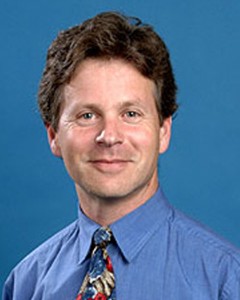
Degrees: PhD
Position(s): Associate Professor, Faculty of Physical Education and Health, University of Toronto.
Research: Dr. Goodman’s research interests include the left ventricular response to acute and chronic exercise stress in both health and disease, central and peripheral limitations to exercise performance, and the mechanisms of cardiovascular adaptation to cardiac rehabilitation.
Position(s): Staff Cardiologist and Associate Head in the Division of Cardiology, Department of Medicine, St. Michael’s Hospital; Professor, Department of Medicine, University of Toronto
Research: Dr. Shaun Goodman is a Staff Cardiologist and Associate Head in the Division of Cardiology, Department of Medicine, at St. Michael’s Hospital. He is a Consultant to the Canadian Heart Research Centre (CHRC). He is a Professor and Heart & Stroke Foundation of Ontario (Polo) Chair in the Department of Medicine at the University of Toronto. He is an Adjunct Professor in the Department of Medicine at the University of Alberta and a Faculty Member of the Canadian VIGOUR Centre (CVC). He completed his Doctor of Medicine (1987) at McMaster University (Hamilton, Ontario) and a Masters of Science in Clinical Epidemiology in the Faculty of Medicine and Graduate Department of Community Health at the University of Toronto (1998). He completed his training in Internal Medicine and Cardiology at the University of Toronto. He pursued a three year Heart & Stroke Foundation of Canada-funded research fellowship before joining the Division of Cardiology at St. Michael’s Hospital in 1995.
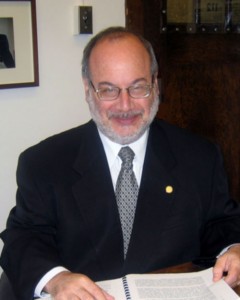
Degrees: BSc, MD, CM, FRCPC
Position(s): Interim Vice-Dean, Research and International Relations Professor Department of Laboratory Medicine and Pathobiology, University of Toronto Director, Vascular Research Laboratory, Dept. of Pathology and Banting and Best Diabetes Centre, University of Toronto Anatomic Pathologist (Cardiovascular) University Health Network
Research: Dr. Gotlieb’s laboratory is a part of the Vascular Research Laboratory and the program in the Cell Biology of Atherosclerosis (Heart and Stroke Foundation of Ontario) at the Toronto General Hospital. In vitro studies on endothelial injury and repair are directed at understanding how the cell cytoskeleton regulates cell migration, an important component of repair, and how various growth factors and cytokines modulate both migration and proliferation related to repair. Studies are also directed at the pathogenesis of intimal hyperplasia, a lesion that predisposes to fibrofatty plaque formation. The role of growth factors, cytokines, and proteinases on intimal hyperplasia is currently under study. In separate studies on the cell biology of cardiac valve, we are also exploring the role of interstitial valvular cells in maintaining the structure and function of heart valves. Interstitial cell function related to repair and cell heterogeneity are currently under study.
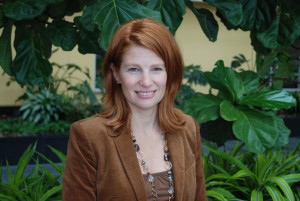
Degrees: PhD
Position(s): Professor, School of Kinesiology and Health Science, Faculty of Health, York University; Assistant Professor, Department of Psychiatry & Rehabilitation Sciences Unit, Faculty of Medicine, University of Toronto; Sr. Scientist, Cardiorespiratory Fitness Team, Toronto Rehabilitation Institute, University Health Network (also a member of Toronto General Hospital Research Institute, Peter Munk Cardiac Centre and Division of Cardiology)
Research: Heart disease is the leading cause of death globally. Due to advances in acute treatments, many patients survive a first heart attack or event. Therefore, there are a large number of people around the world living with a chronic heart problem.
Patients with heart problems are at high risk of another heart attack or other heart problem, and their risk of dying is elevated. Therefore, it is recommended heart patients attend cardiac rehabilitation (CR). CR is an outpatient chronic disease management program, promoting heart-health behaviour changes such as exercise, diet, and smoking cessation. Participation in CR results in improved quality of life, less re-hospitalization, and 25% less death, compared to patients who do not participate.
Unfortunately, research demonstrates low use of, and inequality in access, to CR. This is particularly true in low and middle-income countries, where there is an epidemic of heart disease. There are a combination of factors relating to patients, physicians, and the health care system itself that lead to low CR use.
The objectives of Prof. SL Grace’s programmatic research are to: (1) address patient, provider and system barriers to CR participation so we can reach and treat all indicated patients, and (2) to develop and evaluate a model of CR for low-resource settings.
.
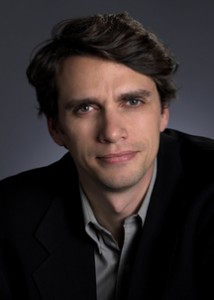
Degrees: PhD
Position(s): Assistant Professor, Department of Physiology, University of Toronto Scientist, McLaughlin Centre for Molecular Medicine Canada Research Chair in Cardiovascular Proteomics /Molecular Therapeutics
Research: In October 2006, the HSRLCE and the University of Toronto’s Department of Physiology recruited Dr. Gramolini as an Assistant Professor and Canada Research Chair. As a postdoctoral fellow, Dr. Gramolini studied the calcium cycling enzyme SERCA, in cardiac and skeletal muscles. Now as an independent scientist, he continues to work on the cellular mechanisms that lead to the proper formation of an internal membrane system in muscle, or “sarcoplasmic reticulum,” which has been implicated as a major contributor to the depressed function in heart failure. Using molecular and cellular approaches, including highly advanced proteomic and genomic methods to investigate the physiological and biochemistry of several key calcium regulatory proteins in cardiac and skeletal muscle, Dr. Gramolini aims to provide novel approaches to the diagnosis and treatment of cardiac disease. Uncovering new cellular pathways involved in diseases such as heart failure could also lead to new biomarkers and therapeutic targets.
H
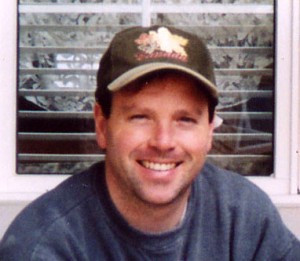
Degrees: BSc, PhD
Position(s): Associate Professor, Department of Physiology, University of Toronto
Research: Dr. Scott Heximer was jointly recruited by the Department of Physiology and the HSRLCE in 2002. Since establishing his laboratory at the University of Toronto, Dr. Heximer has focused on the physiologic processes that control blood pressure regulation and the mechanisms of heterotrimeric G protein signaling, and subsequently defining the roles of G proteins and their regulators in the cardiovascular system. Understanding how blood vessels interpret physiological signals to control blood pressure homeostasis may lead to new treatment possibilities for high blood pressure and atherosclerosis. Dr. Heximer’s work strives to define the function of RGS proteins – potent inhibitors of heterotrimeric G protein signaling in the regulation of cardiovascular function at the level of the heart and blood vessels – in the cardiovascular system. RGS proteins normally “turn off” molecular switches that are activated by hormones and neurotransmitters, which cause blood vessels to constrict. The malfunction of RGS proteins may lead to persistent vessel constriction and high blood pressure. If RGS protein activity can be regulated by genetic or pharmaceutical means, researchers may be able to find new ways of controlling high blood pressure, thus reducing the incidence of heart and blood vessel disease.
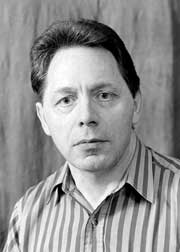
Degrees: MD, PhD, DSc
Position(s): Professor, Department of Laboratory Medicine and Pathobiology, University of Toronto, Senior Scientist, Cardiovascular Research Program, The Hospital for Sick Children.
Research: Dr. Hinek’s previous research interests were scattered through a broad spectrum of subjects, centred around structure and function of connective tissue cells and the extracellular matrix, in the development of disease. He studied problems arising with cartilage and bone transplantation and bioengineering of cartilage from human cells. He has addressed pathomorphology of vascular diseases including atherosclerosis and diabetic arteriopathies, protection of cardiac muscle against cytotoxicity induced by anticancer drugs, and role of proteinases in cancer spreading and metastasis. Many of his studies were aimed at ultrastructure of elastic fibers and the role of impaired elastogenesis in pathological processes ranging from cancer spreading and wound healing to atherosclerosis. They lead to the discovery of the 67-kD elastin binding protein (EBP), which is the alternatively spliced variant of beta-galactosidase (S-GAL) and serves as a major subunit of the cell surface “elastin receptor” propagating multiple intracellular signals. EBP also serves as a recyclable intracellular chaperone facilitating secretion of tropoelastin and assembly of elastic fibers. Dr. Hinek’s research team found that primary or secondary deficiencies in the EBP can be linked to impaired elastin deposition that directly contributes to the development of cardiovascular defects, supravalvular aortic stenosis, occlusions of coronaries, and skeletal deformities in children with such inherited conditions as GM1-gangliosidosis, Morquio B disease, Costello syndrome, Hurler disease, and Williams-Beuren syndrome. Another set of recent results indicates that the second components subunit of the elastin receptor (Neuraminidase-1) also facilitates elastic fiber assembly and may modulate mitogenic response of arterial SMC to mitogenic growth factors IGF-II and PDGF. They have also verified that a third component of cell surface elastin receptor, called Protective Protein, has deamidase activity that may inactivate a potent SMC mitogen and vasoconstrictor, Endothelin 1, thereby controlling arterial blood pressure. Recently they discovered that aldosterone also induces elastin production in cardiac fibroblasts through activation of IGF-1 receptor and explained why inhibition of mineralo-corticosteroid receptors triggers the beneficial remodeling of the injured heart. Pursuing their discovery that subunits of elastin receptor modulate normal production of elastic fibers and control cellular proliferation, they will determine whether overexpression of the EBP and activation of other sub-units of elastin receptor could be used in future therapies of children with inherited elastinopathies, including Williams-Beuren disease and Costello Syndrome. They will also therapeutically apply results to their recent research indicating that low concentration of iron is a prerequisite for the transcription of elastin gene and that polyphenols, ellagic and tannic acids protect elastic fibers present in skin, lungs and arteries from enzymatic degradation. Dr. Hinek has also started new research aimed at pharmacological treatments of children with Marfan disease and Loyes-Dietz syndrome that are characterized with development or aortic aneurysms.
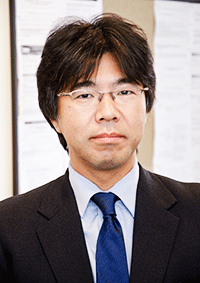
Degrees: MD PhD
Position(s): Staff Cardiovascular Surgeon, The Hospital for Sick Children; Assistant Professor, Cardiac Surgery, University of Toronto
Research:
Congenital heart disease, mechanical circulatory support, heart transplantation, ex-vivo heart perfusion, ischemia reperfusion injury

Degrees: MD PhD RPVI FRCSC
Position(s): Surgeon-Scientist, Division of Vascular Surgery, University Health Network
Associate Professor, Department of Surgery, University of Toronto
Affiliate Scientist, Toronto General Hospital Research Institute
Research: Kathryn went to medical school at the University of Toronto and completed a post-doctoral fellowship at Sick Kids, publishing in several fields during this time, including infection and immunity in HIV, ethics and sustainability in global surgery, and ischemia-reperfusion. As part of her Vascular Surgery residency (McMaster), Kathryn completed a 3-month clinical and research fellowship at Stanford University and established her own bench research program investigating the role of endothelial microRNA in vascular disease. While in the Leeper lab at Stanford, Kathryn became interested in the role of cellular communication within atherosclerotic plaques and efferocytosis (‘clearance of the dead’), a process that is dysregulated in vulnerable lesions. Her research question “Does endothelial activation lead to defective efferocytosis via altered microRNA secretion?” will use in vitro and animal models, as well as human tissue from the McMaster University and Peter Munk Cardiac Centre BioBanks. Her ultimate goal is to find early regulators of atherosclerosis for development of innovative strategies for improved screening tools, risk assessment, and intervention in advance of devastating clinical events such as stroke and myocardial infarction.
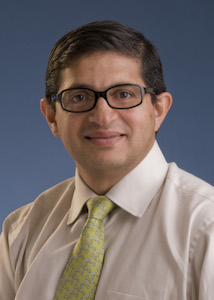
Degrees: MD, PhD
Postion(s): Associate Professor, Departments of Medicine, Physiology, and Laboratory Medicine & Pathobiology, University of Toronto Senior Scientist, Toronto General Hospital Research Institute.
Research: Dr. Husain’s lab focusses on elucidating the molecular bases of cardiovascular diseases such as hypertension, atherosclerosis and heart failure, with a particular emphasis on identifying therapeutic targets involved in pathophysiology. The lab’s approaches encompass both cell culture-based experimental systems andtissue-specific transgenic mouse models of human cardiovascular disease. More specifically, they study the transcriptional and post-translational regulation of cell cycle- and Ca2+-regulatory genes in vascular smooth muscle cells, and the impact of molecular genetic manipulations of these pathways on both the proliferative and contractile phenotypes of vascular smooth muscle cells. The lab is also interested in defining the roles played by certain vasoactive hormones, enzymes and their downstream signaling pathways in inflammatory disease of the heart and circulatory system. More recently, they have begun to characterize and optimize an in vitro system for the differentiation of fully functional smooth muscle cells and cardiac myocytes from embryonic stem cells, with a view to employ these cells in regenerative therapies.
I
J
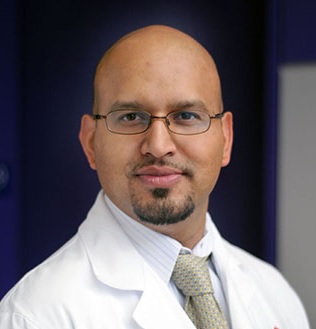
Degree: MBBCh, FAAP, FRCPC
Position: Staff Cardiologist and Section Head; Cardiomyopathy & Heart Function Program, Division of Paediatric Cardiology, The Labatt Family Heart Centre, Sickkids.
Research: Dr Jeewa’s research focus is primarily in clinical heart failure primarily focusing in novel ways to utilize mechanical circulatory support and pharmacotherapies in children with end-stage heart failure and implement large registry-based data to better understand paediatric heart failure outcomes.
K
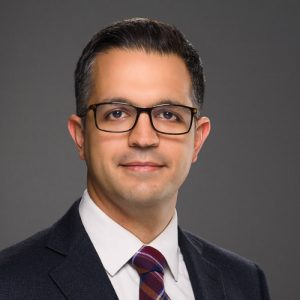
Degrees:MD MSc MPH FRCSC CWSP
Position(s):
- Assistant Professor, Division of Vascular Surgery, University of Toronto
- Blair Early Career Professor in Vascular Surgery, University of Toronto
- Associate Scientist, Schulich Heart Research Program, Sunnybrook Research Institute
- Vascular Surgeon, Sunnybrook Health Sciences Centre
- Wound Care Physician, Women’s College Hospital
Research: Dr. Kayssi’s research interests focus on developing clinical trials in vascular surgery and wound care. He is also interested in quality improvement and health policy, with a special focus on limb preservation and indigenous health. He is currently developing several clinical trials examining the interplay between vascular and endovascular therapies and lower extremity wound healing, with a view to prevent leg amputations, especially in under-serviced and vulnerable communities.
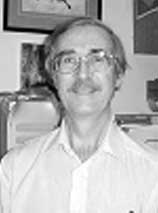
Degrees: PhD
Postion(s): Senior Scientist, Hospital for Sick Children, Professor, Departments of Biochemistry, Laboratory Medicine, and Pathobiology, University of Toronto.
Research: Dr. Fred Keeley, as the Associate Chief (Space) of the Research Institute, directs the allocation, development and utilization review of research space and leads the space planning and development initiatives for the Research Institute. Dr. Keeley is a senior scientist in the Cardiovascular Research Program, and is a Professor in the Departments of Biochemistry and Laboratory Medicine and Pathobiology, and a member of the Research Advisory Committee of the Heart and Stroke/Richard Lewar Centre of Excellence at the University of Toronto. He is a former member of the Board of Directors and the Research Policy Committee, and a current member of the Finance Committee of the Heart and Stroke Foundation of Ontario.
Research interests:
– Regulation of vascular elastin synthesis
– Polymeric assembly of elastin
– Design and properties of biomaterials made from recombinantly expressed elastin-like polypeptides
Research Activities:
– Role of hydrophobic domains of elastin in extracellular assembly of the elastic matrix.
– Self-alignment and polymeric assembly of recombinant human elastin and other elastin-like proteins, with the potential for fabrication of biomaterials with unique and useful physical properties.
– Sequence/structure/function and evolutionary relationships between elastins and elastin-like proteins in cartilage and other matrix proteins of lower vertebrates and invertebrates.
– Mechanisms of regulation of aortic elastin synthesis and assembly into the extracellular elastic matrix with normal development and in pathological circumstances (e.g. hypertension, atherosclerosis).
– Role of transcriptional activity, mRNA stability and efficiency of mRNA translation in regulation of arterial elastin production. Consequences of increased cardiovascular connective tissue protein production in hypertension.
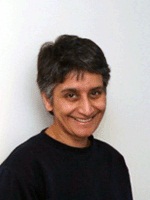
Degrees: PhD
Postion(s): Professor, Department of Medical Biophysics
Research: Transgenic and knockout mice for TIMP and IGF genes to understand their functions in liver, breast and prostate cancer, osteosarcoma, emphysema, breast development and reproduction. For more detailed information consult the Khokha lab homepage at http://khokhalab.uhnres.utoronto.ca/ The lab works on tissue homeostasis and microenvironment in the context of the whole organism using diverse physiological systems. Changes in TIMP regulation of MMP activity can invoke a substancially different disease outcome.
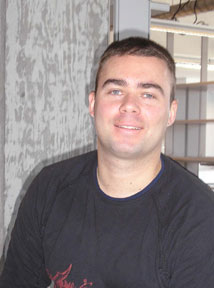
Degrees: PhD
Postion(s): Associate Professor, Department of Medical Biophysics
Research: Dr. Kislinger’s laboratory is focused on the application of expression proteomics and allied computational tools to address specific biological questions. Specifically, the lab is interested in applying multidimensional protein identification technology (MudPIT), a powerful peptide separation technology, to the analysis of isolated organelles from cell cultures, primary cell lines and banked tissue samples in ovarian and breast cancer. Dr. Kislinger is also interested in developing and applying modern bioinformatics tools to the analysis and annotation of the generated datasets.
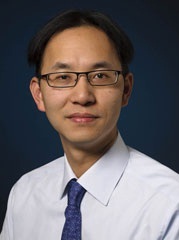
Degrees: MD
Postion(s): Associate Professor, Department of Medicine and Institute of Health Policy, Management and Evaluation
Research: Despite the dramatic advances in cardiovascular medicine in the last several decades, there remains uncertainty about the application of these advances, particularly in many subgroups of patients that are not generally enrolled in clinical trials. Dr. Ko’s research has focused on determining optimal clinical strategies and identifying opportunities for improvement in the prevention, treatment and outcome of cardiovascular disease. These research efforts are intended to provide critical information to improve the quality of health care, monitor changes over time, and guide decisions about the allocation of scarce health care resources.
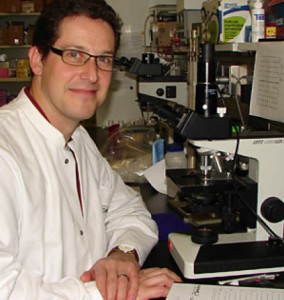
Degrees: MD
Postion(s): Associate Professor, Depts. of Surgery and Physiology, University of Toronto
Research: Dr. Kuebler’s research focuses on translational research in pulmonary and microvascular physiology, in that he aims to integrate basic research on intra- and intercellular signaling and communication pathways to the level of the intact organ and organism. Specifically, Dr. Kuebler applies this approach to the identification of new pathomechanisms and the development of new therapies for acute lung injury, lung edema and pulmonary hypertension.
L
Degrees: PhD
Postion(s): Earle W. McHenry Professor, and Chair, Department of Nutritional Sciences Faculty of Medicine, University of Toronto
Research: Dr. L’Abbe’s research program spans three main areas:
– Mineral and trace element bioavailability, absorption and their regulation at the cellular and molecular level, their role as antioxidants, and mineral interactions
– Food and nutrition policy including, nutrition labelling, health claims, food fortification, food-like NHPs, trans fat, sodium
– Assessing and modelling nutrition policies and population intakes using national food consumption survey data, designing and analyzing surveys on consumer knowledge, attitudes and behaviours related to foods and nutrition, obesity and weight management, and the understanding/use of nutrition labels.
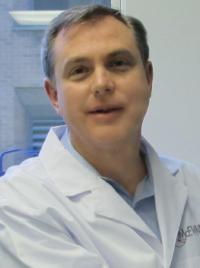
Degrees: MD, PhD
Positions: Senior Scientist, Clinician-Scientist, Associate Professor
Research Focus: Cardiac Repair, Cell-Based Therapy, Stem Cells, Electrophysiology, Cardiac Pathology
Research: Ischemic heart disease remains the leading cause of death in Canada and worldwide. Modern medical management has improved the prognosis of patients after myocardial infarction (MI), but existing therapies are largely aimed at slowing disease progression rather than restoring lost contractile function. My laboratory is focused on developing novel therapies for post-MI heart failure based on human pluripotent stem cells (hPSCs) because hPSCs are the only stem cell type capable of differentiating into large quantities of phenotypically unambiguous cardiomyocytes. Our goal is to restore the electrical and contractile function of injured hearts by “remuscularizing” the infarct scar with hPSC-derived cardiomyocytes.
Our laboratory has already made a number of important advances in this area, including the development of efficient protocols to guide hPSCs into cardiomyocytes and specialized cardiac subtypes, proof-of-concept transplantation studies with hPSC-derived cardiomyocytes in rodent MI models, and the first direct demonstration that hPSC-derived cardiomyocytes can become electrically integrated and activate synchronously with host myocardium in injured hearts. Our ongoing work builds on these successes and is bringing us closer to a viable cell therapy. Current projects in the lab include 1) developing scalable approaches to promote the maturation of hPSC-derived cardiomyocytes in vitro, 2) creating and validating new tools to characterize the electrical behavior of hPSC-derived cardiac grafts in vivo, 3) exploring novel pharmacological and gene-engineering approaches to improve host-graft electromechanical integration and graft electrophysiological function, and 4) testing the efficacy and safety of hPSC-derived cardiomyocyte transplantation in highly relevant preclinical MI models.
Positions: Clinician-Scientist/Assistant Professor
Research Focus: Clinical Trials, Precision Medicine, Cardiac Critical Care, Molecular Epidemology, Metabolomics
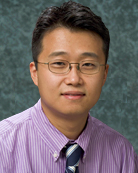
Degrees: MD, PhD
Postion(s): Assistant Professor, Department of Medicine, University of Toronto Clinical Scientist, Institute for Clinical Evaluative Sciences
Research: A previous HSRLCE Tailored Advanced Collaborative Training in Cardiovascular Science (TACTICS) trainee, Dr. Lee has established a successful research program within the Institute for Clinical Evaluative Sciences. His main focus is on health services research, cardiac care and outcomes and clinical epidemiology. Dr. Lee is currently leading a comprehensive CIHR-funded study to create a prediction model to help physicians decide – based on rigorous scientific and statistical analysis – how best to care for acute heart failure patients. This includes determining who should be admitted to hospital and who is likely safe to go home. A multi-disciplinary team is analyzing 20,000 case histories of heart failure patients treated in Ontario emergency departments and hospitals since 2004 to identify “major predictors for adverse outcomes.” Dr. Lee hopes to produce a tool to help doctors compile a patient’s symptoms, medical history and current medications to come up with “an individualized risk score” that would help clarify the best next steps to take in follow-up care.
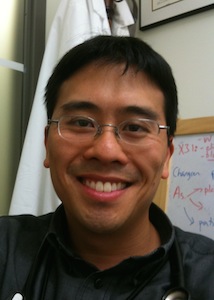
Degrees: MD, PhD
Postion(s): Assistant Professor, Department of Medicine and Laboratory Medicine & Pathobiology, University of Toronto
Research: Dr. Lee received his M.D. from the Faculty of Medicine at the University of Toronto in 1997 and was awarded the Cody Gold Medal. He completed residencies in Internal Medicine, Respirology, and Critical Care Medicine in Toronto. He then undertook research training in the Programme in Cell Biology at the Hospital for Sick Children in the laboratory of Dr. Sergio Grinstein, completing a PhD in 2006. This was followed by postdoctoral training in Microbiology and Immunology at Weill Medical College of Cornell University (New York, NY) in the laboratory of Dr. Carl F. Nathan. In 2008 he was awarded the Polanyi Prize for Physiology/Medicine and in 2011 he received an Early Researcher Award, both from the Government of Ontario. He is currently a staff scientist at the Keenan Research Centre (Li Ka Shing Knowledge Institute) and a physician at St. Michael’s Hospital. Dr. Lee’s lab has an interest in how microvascular endothelial permeability is controlled in health and during disease. There are a number of projects ongoing in the lab that examine how critical proteins and hormones cross the endothelium to access the tissues. In addition, the lab does extensive work on how the host-pathogen interaction affects endothelial permeability. Their research requires a wide variety of experimental techniques, ranging from advanced live cell imaging to more traditional biochemistry and molecular biology approaches. For more details, please see the lab website, warrenleelab.com
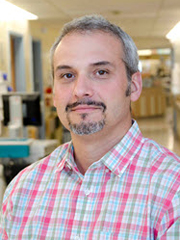
Degrees: MSc, MDCM, PhD, FRCP(C), FAAP
Positions: Assistant Professor of Paediatrics, Staff Nephrologist
Research Focus: Thrombosis, Vascular Biology, Endothelium, Kidney, Hypertension
Research: My main interest is to do translational research that pertains to rare paediatric kidney diseases using genomic tools for gene discovery followed by careful functional dissection of candidate genes using cutting edge microscopic, cell biology and biochemical methods.
• We recently identified the first non-complement gene that causes a recessive form of atypical hemolytic-uremic syndrome (aHUS), diacylglycerol kinase epsilon. (DGKE; Lemaire et al., Nature Genetics, 2013).
• We are working to tease out how DGKE loss-of-function causes thrombosis that is restricted to small calibre vessels of infant’s kidneys.
• We are continuing to perform gene discovery on a variety of rare paediatric kidney diseases using whole-exome sequencing.
Currently, our main focus has been atypical HUS with the hope that our results will not only contribute to a better understanding, but will also translate into tangible changes in clinical care within a reasonable time frame.
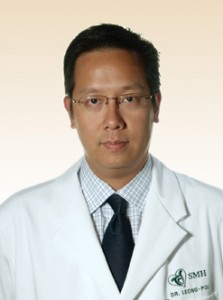
Degrees: MD, FRCPC
Postion(s): Associate Professor of Medicine
Research: Dr. Leong-Poi’s research program focuses on novel diagnostic and therapeutic applications for contrast ultrasound and targeted microbubbles, including ultrasound-mediated gene and progenitor cell-based delivery for therapeutic angiogenesis in ischemic cardiac and peripheral vascular disease, and for amelioration of heart failure; molecular imaging of cell therapy and angiogenesis using contrast-enhanced ultrasound and targeted microbubbles; and gene therapy approaches to treat cancers. Collaboration exists with several other investigators, in small animal echocardiographic and vascular ultrasound imaging, as well as several clinical echocardiographic and vascular ultrasound research studies/protocols.
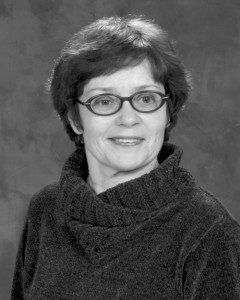
Degrees: PhD
Postion(s): Professor, Departments of Immunology, Pediatrics, Medical Biophysics and Obstetrics and Gynecology, University of Toronto Senior Scientist, Hospital for Sick Children
Research: Dr. Letarte’s laboratory concentrates on vascular diseases caused by mutations in genes coding for receptors of the transforming growth factor beta superfamily. Her team focuses primarily on the proteins endoglin and ALK1, which are specifically expressed on endothelial cells. Endothelial cells line the blood vessels and provide oxygen and nutrients to all tissues. Dr. Letarte’s research team aims to understand how these mutations lead to specific vascular diseases. In particular, they hope to gain a better understanding of the structure and function of endoglin in cells and animal models, using a variety of molecular, cellular and immunological techniques. They are also working to characterize new endothelial cell pathways that are defective in vascular disease. Recent studies have found that a soluble form of endoglin is associated with preeclampsia, a pregnancy disorder that complicates five per cent of pregnancies.

Degrees: MD, FRCPC
Postion(s): Associate Professor, Department of Medicine, Division of Endocrinology, University of Toronto and Toronto General Hospital, Head, Division of Clinical Investigation and Human Physiology, Toronto General Hospital Research Institute, University Health Network.
Research: The two major lines of research interest of Dr. Lewis’ laboratory are:
a) Determining the mechanism of intestinal and hepatic lipoprotein overproduction in insulin resistance and Type 2 diabetes. The lab performs studies in humans and in small animal models of insulin resistance, attempting to determine the molecular mechanisms whereby the liver and intestine overproduce lipoproteins in these conditions. The lab is currently examining the regulation of intestinal and hepatic lipoprotein particle production by hormones and inflammatory factors in humans, particularly as they pertain to the insulin resistant condition.
b) Determining the mechanism of high density lipoprotein (HDL) lowering in hypertriglyceridemic states such as insulin resistance and Type 2 diabetes. An additional major thrust of Dr. Lewis’ research has been to determine the mechanisms responsible for HDL lowering in hypertriglyceridemic states. The current focus is on the mechanism whereby HDL triglyceride enrichment and interaction with hepatic lipase affects HDL clearance from the circulation.
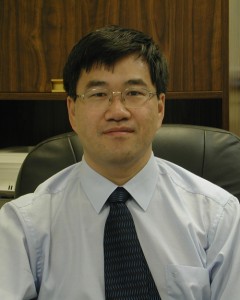
Degrees: MD, PhD
Postion(s): Professor, Department of Surgery, University of Toronto Division of Cardiovascular Surgery, Toronto General Hospital.
Research: Dr. Li’s research has focused on 2 research areas:
Cell transplantation into myocardial scar tissue to regenerate damaged myocardium and restore cardiac function after myocardial infarction: cardiovascular disease is a leading cause of morbidity and mortality worldwide. Since heart failure after heart attack is due to loss of cardiac cells and inability of muscle cell regeneration, Dr. Li hypothesized implantation healthy muscle cells into damaged myocardium will repair the damaged tissue and improve heart function. In 1996 Dr. Li demonstrated for a first time that cells transplanted into myocardial scar tissue survived, developed into muscle tissue and improved heart function. Currently he is investigating optimal cell type and conditions for transplanted cells to improve heart function using small and large animal models. He also studies the mechanism for transplanted cells to improve heart function. These studies will provide important information for clinical trials. This project is being supported by the Canadian Institutes of Health and Research and Heart and Stroke Foundation of Ontario.
Tissue engineering to grow an autologous myocardial tissue to repair the damaged heart or heart defect: Dr. Li has established technology to culture cardiomyocytes, smooth muscle cells and endothelial cells in three-dimensions in biodegradable materials. In a cardiomyocyte study, the tissue-engineered mesh beats regularly and spontaneously in vitro and in vivo. Currently, he is using an autologous tissue-engineered mesh to repair the damaged myocardial tissue. This project is funded by the Heart and Stroke Foundation of Ontario and Canadian Institutes of Health and Research.
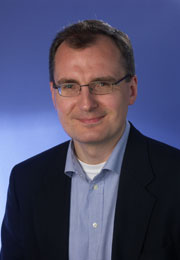
Positions: Associate Professor of Paediatrics, Senior Associate Scientist, Staff Physician (Division of Nephrology)
Research Focus: Complement-Mediated Diseases; Atypical, Hemolytic Uremic Syndrome; Thrombotic Mircoangiopathy; Vascular Endothelium; Blood Outgrowth Endothelial Cells
Research: My current research focuses on the interface of the coagulation and complement system. In particular, I am interested in the role of CFH in the regulation of platelet function in aHUS. We hypothesize a novel scenario for the progression of aHUS in children, in which a breakdown in CFH-mediated inhibition of the alternative complement pathway on the surface of platelets directly triggers their activation. We will examine this hypothesis via experiments involving material from normal donors and children with aHUS to:
a. determine platelet uptake, release and cellular localization of CFH and map its interactions with other platelet proteins
b. determine the role of CFH in complement-mediated platelet activation
c. establish the relevance of platelet-CFH interactions to the pathophysiology of aHUS in children.
Our results will contribute to a better understanding of aHUS, establishing the basis for the development of improved methods for monitoring disease progression, assessing the efficacy of existing treatments and evaluating new, less risky and more effective treatments.
Our group has extensive experience both in the treatment of children with aHUS, and in basic research concerning the complement system, blood coagulation, and platelets. Techniques currently used in my laboratory include platelet preparation, coagulation assays, immunofluorescence staining and imaging by spinning disk confocal laser microscopy, and protein analysis using immunoblotting. In addition, access to numerous state of the art core facilities includes DNA sequencing, mass-spectrometry, and flow cytometry.
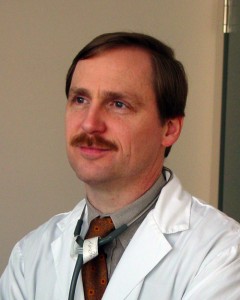
Degrees: MDCM, MSc, FRCSC
Postion(s): Assistant Professor, Department of Surgery, University of Toronto, Research Supervisor, Institute of Medical Sciences, Staff Surgeon, Vascular Surgery, University of Toronto.
Research: Dr. Thomas’ lab has been involved in defining the pathophysiologic mechanisms which are responsible for the 50% mortality experienced by ruptured abdominal aortic aneurysm patients. This work began seven years ago with investigations in both patients and animals. His initial hypothesis was that patients who suffer aortic aneurysm rupture experienced a two hit ischemia/reperfusion injury. He has tested this hypothesis in elective and ruptured AAA patients and found that ruptured patients have primed neutrophils upon arrival in the emergency department, which become further activated in the postoperative phase. In addition, they have noted evidence of a ‘two hit’ oxidative injury in the ruptured patient group. In comparison elective aneurysm patients do not develop any evidence of oxidative tissue injury but their neutrophils become primed postoperatively. Thus, findings to date support the two hit ischemia/reperfusion injury hypothesis initially proposed. Dr. Thomas’ animal studies employ a model of ruptured aortic aneurysm repair initially developed and published by his laboratory. In this model, they have demonstrated that the combination of hemorrhagic shock and lower torso ischemia results in synergistic local and remote organ injury. They have investigated the role of neutrophils and the adhesion protein CD18 as well as the role of antioxidants in mediating tissue injury in this model. Our studies have demonstrated that neutrophils mediate major components of both the local and remote organ injury in this model. A more recent focus in the laboratory has been the investigation of myocardial dysfunction following hemorrhagic shock. These studies have revealed that a brief period of shock results in significant myocardial dysfunction that is dependent upon tumor necrosis factor. The lab’s studies have concentrated on early events following hemorrhagic shock in an attempt to identify the molecular signals, which result in the rapid expression of TNF in the myocardium and its role in myocardial dysfunction. As noted above, the laboratory continues to concentrate on investigations in both humans and in our animal model. In humans, they are currently investigating the release of endotoxin following elective and ruptured aneurysm repair. A new project on neutrophil apoptosis in aneurysm patients is also underway. Their animal studies are divided between investigations studying the effects of shock alone on myocardial dysfunction and the etiology of remote organ injury and the role of cytokines in this model. The most recent work suggests key roles for iNOS and the complement pathway in the development of organ injury in our animal model. They are currently trying to identify the pathways that trigger activation of the complement cascade in this two hit model. The molecular pathways induced by ischemia that initiate the activation of the inflammatory response are also under investigation. It is expected that one of the numerous complement antagonists currently in clinical trials and may have applicability to the human ruptured abdominal aortic aneruysm patients.
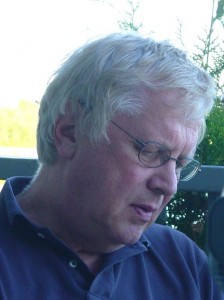
Degrees: MD, MSc, FRCPC
Postion(s): Professor, Departments of Medicine and Public Health Sciences, University of Toronto, Medical Staff, University Health Network and Mount Sinai Hospital.
Research: Hypertension is known as “the silent killer.” Hypertension – or high blood pressure – is the number one risk factor for stroke and a major cause of heart disease. It affects 20 to 25 per cent of the adult population, and becomes more common as people age. In people with diabetes hypertension can lead to kidney failure; it is also linked to sleep apnea and sleep deprivation. As a physician, Dr. Alexander Logan sees first-hand the devastating effects of hypertension. As a Scientist at the Samuel Lunenfeld Research Institute, Dr. Logan conducts research into the causes and treatment of drug-resistant hypertension. Dr. Logan is employing an innovative approach for determining better ways to control blood pressure in patients with diabetes. Participants are provided with a specially equipped home blood pressure measuring device and a cell phone, which automatically transmits readings to the hospital. The resulting range of readings facilitates better management of patients’ blood pressure. Good control could, in the long term, translate into 40% fewer heart attacks and strokes among diabetes patients with uncontrolled hypertension. In a study of sleep apnea and drug-resistant hypertension, Dr. Logan and his team are assessing the relationship of fluid movement from the legs during the night and sleep disordered breathing. The concept is novel and posits that sleep apnea and abnormal sleep patterns are secondary problems, not the primary, as is generally thought. Their findings may have significant implications for the management of these related conditions. He is also an executive member of a team of investigators assessing the effects of treating sleep apnea in heart failure patients with a device that is better able to restore normal breathing pattern.
Position(s): Professor of Medicine at the Faculty of Medicine, University of Toronto; Senior Scientist at the Toronto General Hospital Research Institute; Medical Director of both the chronic kidney diseases and hemodialysis vascular access programs at the Toronto General Hospital
M

Degrees: MD, PhD
Postions: Director, Mecklinger and Posluns Families Clinical Cardiac Catheterization Research Laboratory, Director, Anna Prosserman Heart Function Clinic, Clinician Scientist, Lunenfeld-Tanenbaum Research Institute, Assistant Professor of Medicine, U of T
Research: Dr. Mak perform cardiac catheterization-based human studies of integrative cardiovascular physiology in vivo , particularly specialized investigations for advanced heart failure. Her expertise is in the assessment of hemodynamics and heart chamber function. Dr. Mak’s research interests include the contrasts between the cardiovascular physiology of men and women with a focus on exercise, the pathophysiology of pulmonary arterial hypertension and heart failure, the physiology of the non-pulsatile assisted circulation and the quality of care for patients with acute and chronic heart failure. As a clinical cardiologist, she is a heart failure specialist at the Anna Prosserman Heart Function Clinic, which is the longest serving Heart Failure Clinic in Toronto.
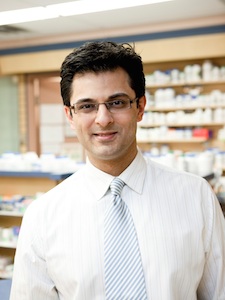
Degrees: PharmD, MA, MPH
Postion(s): Director – Applied Health Research Centre (AHRC), Keenan Research Centre, Li Ka Shing Knowledge Institute of St. Michael’s Hospital; Professor, University of Toronto
Research: Dr. Mamdani is the Director of the Applied Health Research Centre (AHRC), the Keenan Research Centre, Li Ka Shing Knowledge Institute of St. Michael’s Hospital in Toronto. He is also Professor in the Leslie Dan Faculty of Pharmacy and in the Dept of Health Policy, Management and Evaluation of the Faculty of Medicine, where he supervises graduate students and an adjunct Scientist at the Institute for Clinical Evaluative Sciences (ICES). Prior to joining the Li Ka Shing Knowledge Institute and St. Michael’s Hospital, Dr. Mamdani was a Director of Outcomes Research at Pfizer Global Pharmaceuticals in New York. In 2010 he was named among Canada’s ‘Top 40 Under 40’. This year he was named as a Fellow of the Canadian Academy of Health Sciences (CAHS). Dr. Mamdani’s research interests include pharmacoepidemiology, pharmacoeconomics, and drug policy. He has published over 270 research studies in peer-reviewed medical journals. Dr. Mamdani obtained a Doctor of Pharmacy degree (PharmD) from the University of Michigan (Ann Arbor) in 1995 and subsequently completed a fellowship in pharmacoeconomics and outcomes research at the Detroit Medical Center in 1997. During his fellowship, Dr. Mamdani obtained a Master of Arts degree in Economics from Wayne State University in Detroit, Michigan. He then completed a Master of Public Health degree from Harvard University in 1998 with a concentration in quantitative methods, focusing on biostatistics and epidemiological principles.
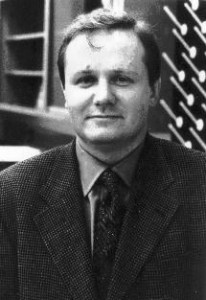
Degrees: MD
Postion(s): Professor, Departments of Medicine, Medical Biophysics, and Laboratory Medicine and Pathobiology, University of Toronto Director, Division of Nephrology, University of Toronto Clinician-Scientist, Department of Nephrology, St. Michael’s Hospital
Research: Dr. Philip A. Marsden is recognized as one of the leading international experts in the field of cellular and molecular regulation of endothelial-derived vasomediator expression. He established an independent laboratory in 1991 at the University of Toronto and St. Michael’s Hospital and is currently the Keenan Chair in Medical Research. Dr. Marsden’s lab is focused on understanding the contribution of endothelial cells to human health and disease – especially the contribution of important endothelial genes to disease processes and novel aspects of how endothelial genes are regulated. In 1992, the lab and collaborators described the cloning, characterization and functional expression of the nitric oxide (NO) synthase that produces NO within endothelial cells. They were also the first to characterize and map the human efficacy of nitric oxide (eNOS) and neuronal nitric oxide synthase (nNOS) genes. As well, Dr. Marsden’s studies with human patient samples were the first to demonstrate decreases in the expression of eNOS Messenger RNA mRNA and protein in atherosclerotic blood vessels. Through his research, he has helped firmly establish that endothelial cells in culture are a wonderful model for dissecting the mechanisms that perturb vascular tonus in diseases of the blood vessel. Recently, his work has led to the realization that chromatin-based, or epigenetic, pathways are key players in endothelial gene expression, both in health and disease.
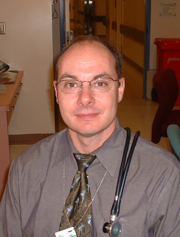
Degrees: MD, MPH, FRCPC, FACC
Postion(s): Professor, Department of Paediatrics
Research: Clinical aspects of lipid disorders and cardiovascular risk factors assessment and intervention, clinical trials. Cardiologic aspects of Kawasaki disease, particularly assessment and intervention for cardiovascular risk. An evidence-based approach to common paediatric cardiovascular disorders and complaints. Psychosocial, neurodevelopmental and quality of life aspects relevant to paediatric cardiology. Outcomes assessment of congenital heart disease and interventions, both in children and adults.
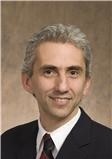
Degree(s): MD, PhD
Position(s): Professor of Pediatrics, Department of Pediatrics, Faculty of Medicine, University of Toronto. Section Head of Echocardiography Laboratory, Labatt Family Heart Centre, The Hospital for Sick Children. Associate Staff, Toronto General Hospital, University Health Network, Department of Medicine, Division of Cardiology.
Research: Dr. Mertens’ research activities are focused on studying heart function in children using novel echocardiographic techniques. Current research projects include:
Mechanistic interrogation of bicuspid aortic valve-associated aortopathy. This is a multicenter transatlantic initiative funded by the Leducq Foundation studying aortopathy in bicuspid aortic valve disease. The group is responsible for the creation of a central clinical database and for performing prospective imaging studies in children.
Novel approaches to the prediction, diagnosis and treatment of cardiac late effects in survivors of childhood cancer. This is a CIHR funded multicenter study looking at imaging markers, biomarkers, and genetic markers for the early detection of cardiac dysfunction in pediatric cancer survivors exposed to anthracyclines.
Bicycle exercise echocardiography to study ventricular response to exercise in children with heart disease. The methods of semi-supine exercise echocardiography was optimized and standardized by our group. Normal values for the tissue Doppler and strain response to exercise in children with heart disease were established and the methodology was applied to children with different diseases (cardiomyopathy, transplant patients, coarctation patients, Fontan patients). Multiple studies are currently being performed.
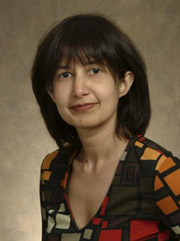
Degrees: MD, FACC, FAHA, FRCP(C)
Postion(s): Staff Cardiologist Principal Investigator, Biobank Transplant Centre, Labatt Family Heart Centre Associate Scientist, Genetics & Genome Biology, Hospital for Sick Children Research Institute Associate Professor, Department of Pediatrics, University of Toronto
Research:
– Genome-wide approach to study the genetic and environmental basis of heart disease in children and adults
– Genetic determinants of outcomes in congenital heart disease and cardiomyopathy
– Pharmacogenetic and personalized medicine approaches in children with heart disease
– Stem cell regulation in cardiac malformations and use of reprogrammed human induced pluripotent stem cells for disease modeling and drug discovery
– Molecular basis of right ventricular adaptation and failure Research Activities
– Established an Ontario province-wide heart centre biobank to study the genetic and environmental basis of heart disease in children and adults.
– Multicenter study of genetic determinants of outcomes in heart disease through the Pediatric Heart Network.
– Cardiac differentiation of pluripotent stem cells for disease modeling and drug discovery
– Cardiac biomarker discovery using stem cell approaches in heart disease (MRI-GL2)
– International Network for training and education in genomics of heart disease (MRI-ISOP)

Degrees: MBBS, FRCP, FRCR
Postion(s): Associate scientist, imaging – Schulich heart research program, Sunnybrook Research Institute; Radiologist-in-chief, medical imaging, Sunnybrook Health Sciences Centre and Women’s College Hospital; Associate professor, Institute of Medical Science, School of Graduate Studies, University of Toronto; Professor, medical imaging, University of Toronto; Associate professor, medical biophysics, University of Toronto
Research: Magnetic resonance imaging (MRI) has rapidly established itself as a major imaging technique for the visualization of vascular diseases. In particular, magnetic resonance direct thrombus imaging (MRDTI) provides a closer, more in-depth look into occluded arteries, providing information never seen before, and has the potential of changing the standard of imaging everywhere. This new MRI technique aims at early diagnosis and intervention to prevent strokes and heart attacks by detecting vulnerable plaques in arteries of patients who are asymptomatic. Dr. Moody and his team are interested in developing and incorporating such imaging techniques in a comprehensive effort to identify and stabilize vulnerable plaques in one integrated procedure. Applications of MRDTI in the coronary, renal arteries and aorta are also underway. The following areas are also under investigation using MRDTI: – ischemia
– treatment of occlusive vascular disease
– atherosclerotic plaque in the coronary and neurovascular circulations
– deep venous thromboses
– diagnostic utility in endometriosis.
Postion(s): Assistant Professor, University of Toronto
N
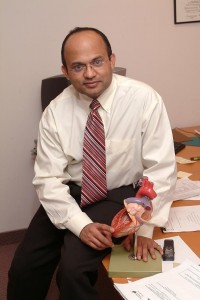
Degrees: MD
Postion(s): Assistant Professor, Department of Medicine, University of Toronto Clinician-Scientist, Electrophysiologist, University Health Network Associate Staff Physician, Mount Sinai Hospital Scientist, Toronto General Research Institute
Research: Dr. Kumar Nanthakumar’s electrophysiology research has been primarily based on the lethal heart rhythm disturbance known as ventricular fibrillation (VF), specifically the mechanisms of human VF. His clinical expertise lies in the management of arrythmias in heart failure. Dr. Nanthakumar started this research in his student days and continues to expand on this work in his research laboratory at the Toronto General Hospital. His research in the recent past has shown that rotors are responsible for maintaining human VF in the early phases. He has detailed a new method and model for studying human VF in which fibrillation can be mapped in human Langendorff preparations using optical mapping. Previously, understanding mechanisms of VF has been limited by the fact that the mechanistic processes change very rapidly, making time segment analysis near impossible. He therefore innovated a mathematical technique using an instantaneous frequency analysis method for studying human VF. He continues to explore the world of arrhythmia in the human heart and is currently using explanted human hearts, keeping them beating with the use of a Langendorff machine, constructed in his laboratory. His work is funded by grants from the Canadian Institutes of Health Research, from the Heart & Stroke Foundation and the Ministry of Innovation Ontario for researching the mechanisms of human VF, he has also established the Hull Family Cardiac Fibrillation Management Laboratory at the Toronto General Hospital.
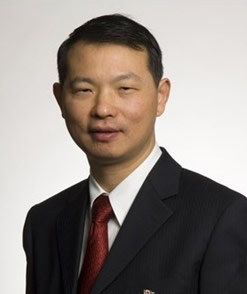
Degrees: MD, PhD
Postion(s): Scientist in the Keenan Research Centre of the Li Ka Shing Knowledge Institute of St. Michael’s Hospital Associate Professor, Laboratory Medicine and Pathobiology, University of Toronto Associate Professor, Medicine, University of Toronto Associate Professor, Physiology, University of Toronto Scientist, Research and Development, Canadian Blood Services
Research: Dr. Ni’s laboratory currently investigates the role(s) of adhesion molecules (in particular the beta3 integrin and GPIb alpha complexes) involved in clot formation as well as their implications for hemostasis (including bleeding disorders) and thrombotic diseases (ie. heart attack and stroke). The laboratory also studies allo- and autoimmune diseases related to bleeding disorders such as immune thrombocytopenia (ITP) and fetal and neonatal alloimmune thrombocytopenic purpura (FNAITP). These studies have been well funded by both internal and external granting agencies including Canadian Institutes of Health Research (CIHR), Heart and Stroke Foundation of Canada (HSFC), Canadian Blood Services (CBS) and Canada Foundation for Innovation (CFI), etc.
Platelet physiology and thrombosis: thrombotic diseases such as heart attack and stroke are the leading causes of mortality and mobility worldwide. Dr. Li’s lab established an intravital microscopy thrombosis model at Harvard to study thrombus formation in real time in live mice. Through direct monitoring of platelet adhesion and aggregation in vivo, they were the first to observe that platelet aggregation and thrombus formation still occur in mice lacking both von Willebrand factor (VWF) and fibrinogen (Fg). This surprising discovery challenged the established theory of thrombosis that required VWF and Fg for thrombus formation and suggested that other unidentified molecule(s) may also be involved in thrombosis and hemostasis and may provide novel targets for anti-thrombotic therapies. His team is in the process of identifying these mystery molecules at St. Michael’s Hospital using several state-of-the-art techniques such as proteomics and confocal intravital microscopy.
Platelet immunology and maternal immune response to fetal antigens: Dr. Ni’s laboratory recently published two important papers in blood investigation: 1) How ITP mediated by anti-3 integrin and anti-GPIb antibodies differ, finding that these two antibody specificities may respond to therapy differently. This has important implications for human ITP and potential screening of patients in order to successfully treat this disease. 2) The first animal model of FNAITP, characterizing the disease and its response to intravenous immunoglobulin G (IVIG) therapy. Currently, the laboratory is studying the molecular and cellular basis for ITP, the maternal immune responses to fetal platelet antigens and the roles of anti-angiogenesis and apoptosis in the patho-progression of FNAITP.
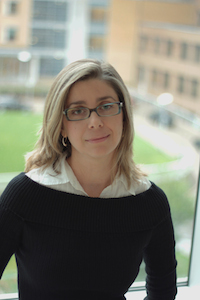
Degrees: PhD
Postion(s): Assistant Professor, Institute of Biomaterials and Biomedical Engineering (IBBME), University of Toronto; Assistant Scientist, Toronto General Research Intsitute, University Health Network
Research: Motivated by the need to generate alternative therapeutic avenues to treat cardiovascular diseases, Dr. Nunes de Vasconceslos research interests involve the development of vascularization strategies in combination with human stem cells for regenerative medicine and the generation of vascularized human tissue mimics as surrogate human tissues for cell biology studies and drug screening purposes. Her research program is focused on understanding the nature and mechanistic basis of vessel maturation during adult neovascularization and in the coupled development of cardiomyocytes and the vasculature. The long-term goal is to provide the basis for the development of innovative tools for regenerative medicine. Strategies include: transgenic animal models, stem cells, cell culture, bioengineering approaches. Automatic Pubmed search link: http://www.ncbi.nlm.nih.gov/pubmed/?term=Nunes+ss[Author]
O
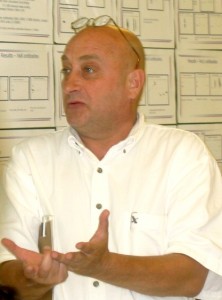
Degrees: PhD
Postion(s): Professor, Department of Laboratory Medicine and Pathobiology and the Institute of Medical Science, Faculty of Medicine, University of Toronto.
Research: Dr. Opas’ laboratory is interested in the mechanical, biophysical and cellular aspects of cell interactions with its surroundings. Cells are not only exquisitely sensitive to biomechanical properties of their environment, but also actively participate in its remodelling by both biomechanical and biochemical means. Conversely, biomechanical properties of cell environment affect cell differentiation and function. All of these processes depend on calcium as a signalling molecule. An ER resident protein, calreticulin emerged as universally important calcium-storage protein implicated to play a role in a variety of diverse areas of cell biology and as such has attracted substantial research interest in Dr. Opas’ laboratory. Their interest is in the role of calreticulin in determining the output of ES cell differentiation. Calreticulin, either by its role in intracellular calcium homeostasis or as a chaperone, modulates actions of tissue-specific transcription factors and signalling pathways that control cell lineage specification and expression of the differentiated phenotype. It has long been accepted that the biomechanical properties of the growth substratum, by modulating cell adhesiveness, shape, and cytoarchitecture, influence the phenotype of many cells, including ES cells. Cell adhesion and shape are modulated by calreticulin. Thus, both cell shape and signalling pathways are affected by calreticulin expression level. Consequently, Dr. Opas’ postulates that the cell fate choice may be controlled by the combinatorial action of calreticulin level of expression and biomechanics of the substratum. The lab has been studying ES cell differentiation toward adipogenic and osteogenic lineages where the effect of calreticulin seems to be that of a switch either promoting (bone) or suppressing (fat) differentiation. In another line of research, they have been studying cardiac differentiation from ES cells in which the calreticulin gene has been genetically manipulated. As heart-targeted overexpression of calreticulin also causes lethality due to cardiac defects, the protein seems to play a role not only in cardiomyogenesis but also in proper functioning of the differentiated cardiomyocyte.
P
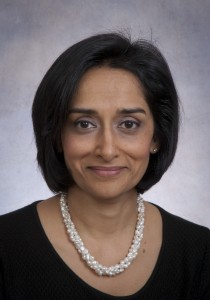
Degrees: MD, MS, FRCPC
Position(s): Professor of Pediatrics and Medicine, University of Toronto, Staff Nephrologist and Clinician Scientist, Interim Director Transplant and Regenerative Medicine Centre, The Hospital for Sick Children, Program Director of Nephrology and Pediatric Nephrology, University of Toronto
Research: Dr. Parekh research focus is to study risk factors, clinical and genetic, leading to progression of chronic kidney and cardiovascular disease. Her expertise is in longitudinal observational studies concentrating on chronic kidney disease and associated complications of chronic pediatric diseases, increased risk of cardiovascular diseases, in particular sudden cardiac death among dialysis patients using novel cardiac imaging and ECG techniques.
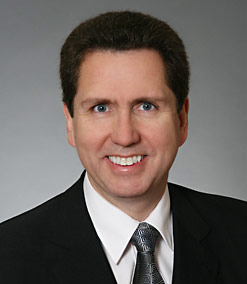
Degrees: MD FRCPC FACC
Postion(s): Physician-in-Chief, St. Michael’s Hospital Wallace G. Chalmers Professor of Medicine, University of Toronto Scientist in the Keenan Research Centre of the Li Ka Shing Knowledge Institute of St. Michael’s Hospital
Research: Dr. Parker’s research focuses on the molecular regulation of cardiac-specific gene expression in cardiac hypertrophy and failure. This has involved studies of transcriptional control of gene expression in cultured cardiac muscle, analysis of the molecular response to myocardial infarction, elucidation of signal transduction pathways involved in muscle growth and gene expression and the identification of novel molecules that regulate cardiac hypertrophy and myocyte apoptosis. Dr. Parker’s group applies transgenic and gene knockout strategies in mice to study the molecular physiology of these novel molecules, with a focus on the S100 family of calcium-binding proteins. Theirs was the first group to define a role for these proteins in cardiac pathophysiology. They also explore the capacity of bone marrow-derived stem cells to regenerate cardiac structure and function following myocardial infarction.
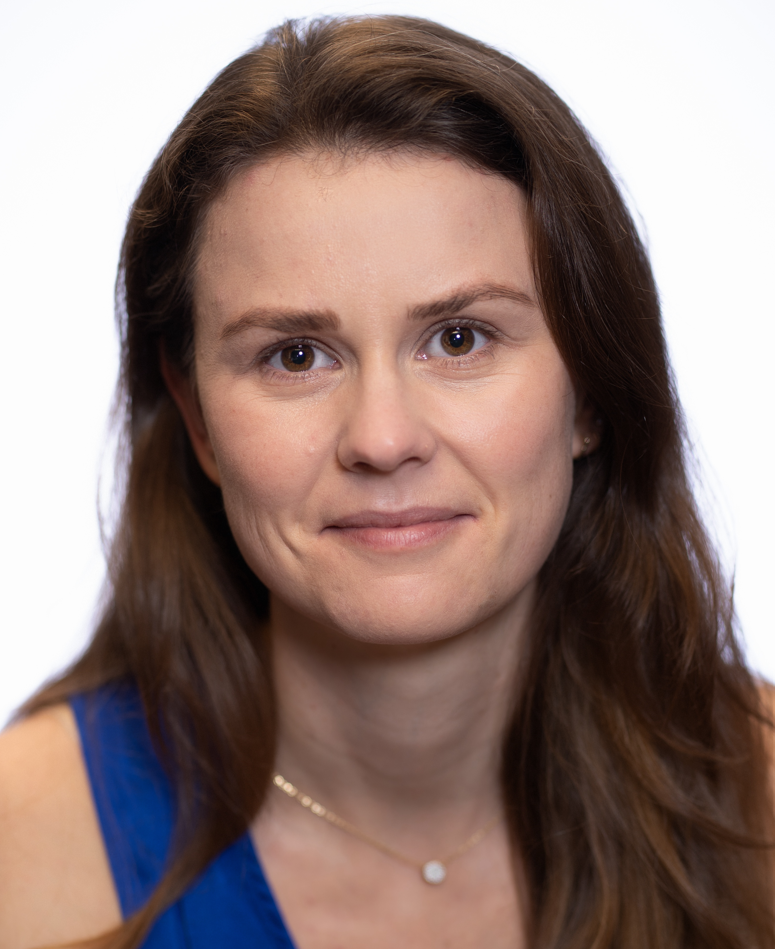
Degrees: PhD
Postion(s): Scientist, McEwen Stem Cell Institute, University Health Network & Assistant Professor, Department of Molecular Genetics, University of Toronto
Research: Dr. Protze’s research program focuses on human heart development and diseases with the overarching goal to develop new therapies to treat cardiovascular diseases. To this end, her laboratory employs a variety of experimental approaches ranging from cell biology to molecular genetics, genomics, and electrophysiology, using human pluripotent stem cells as a model system. The current projects in Dr. Protze’s laboratory are focused on the cardiac conduction system that regulates the heartbeat and on establishing developmental biology-based approaches for the differentiation of human pluripotent stem cells into the sinoatrial node and atrioventricular node pacemaker cells. In these projects, new insights into the development of the pacemaker cells of the human heart are gained. In addition, Dr. Protze is applying the ability to generate pacemaker cells to patient-derived induced pluripotent stem cells to establish in vitro models of pacemaker diseases, such as congenital heart block. These studies aim at exploring disease mechanisms and identifying potential drug treatment targets. Furthermore, Dr. Protze is also exploring the application of the stem cell-derived pacemaker populations in cell therapy approaches to treat heart rhythm disorders. To this end, her research team is using electrophysiology assays to test the ability of the pacemaker cells to function as a biological pacemaker in vitro and in vivo in small and large pre-clinical animal models.
https://www.uhnresearch.ca/researcher/stephanie-protze
Q
R
Degrees: MD/PhD
Positions: Scientist; Associate Director; Assistant Professor
Research Focus: Heart failure, ACS – STEMI, OHCA
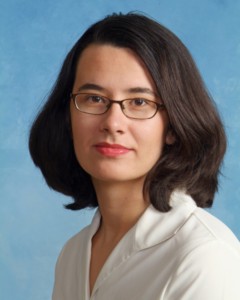
Degrees: PhD
Postion(s): Assistant Professor, Institute of Biomaterials and Biomedical Engineering, Department of Chemical Engineering and Applied Chemistry, University of Toronto
Research: Dr. Milica Radisic’s research program consists of several projects in the realm of cardiac tissue engineering and regenerative medicine. The millions of people who suffer from myocardial infarction each year sustain some permanent heart damage in the form of scar tissue, which is too inflexible and rigid to beat. This, in turn, can worsen the damage and lead to congestive heart failure. Dr. Radisic’s research is seeking ways to repair heart damage by replacing scar tissue with patches of specially engineered tissue cells grown in the lab. Her lab has pioneered studies of how electrical stimulation can help these cardiac cells contract and form functional heart tissue. This type of tissue engineering could lead to alternative treatment options and new techniques for repairing heart damage caused by a number of diseases such as diabetes.
Postion(s): Professor of Medicine, University of Toronto, Staff Cardiologist and Director, Clinical Cardiology, University Health Network.
Research: Dr. Rakowski’s research focuses on hypertrophic cardiomyopathy; valvular heart disease; and contrast echocardiography.
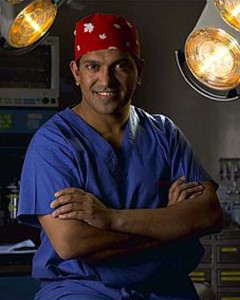
Degrees: MD, PhD, FRCSC
Postion(s): Assistant Professor, Department of Surgery, University of Toronto, Staff Surgeon, Division of Cardiovascular Surgery, University Health Network
Research: Dr. Rao is interested in myocardial protection for cardiac surgery, transplant vasculopathy and vascular biology of the endothelium.

Degrees: PhD
Postion(s): Scientist, Toronto General Research Institute
Research: Dr. Robbin’s current interest is to elucidate the role of extramedullary myelopoiesis in the development of atherosclerotic disease. His work demonstrates that monocytes borne in a splenic hematopoietic niche decisively influence the evolution of atherosclerotic lesions. Determining the origins of inflammation in atherosclerosis will undoubtedly reveal novel therapeutic targets in treating disease. In addition, he is presently deciphering novel mechanisms in host defense against bacterial infection. Specifically, his group recently identified a novel B lymphocyte subset that orchestrates the septic shock response. Working at the MGH has afforded me the opportunity to pursue his research interests with access to world-class facilities, resources and personnel.

Degrees: MD, FRCPC
Postion(s): The Hospital for Sick Children Staff Physician Nephrology Research Institute Scientist Cell Biology University of Toronto Associate Professor Paediatrics Chair Positions Canada Research Chair in Leukocyte Migration in Inflammation and Injury
Research: Study of the mechanisms controlling leukocyte migration into sites of inflammation. The body’s response to injury is to lure white blood cells from the bloodstream to the affected site. Once there, white cells stick to blood vessels overlying the inflamed tissue. When activated by the right signals, white cells migrate through the vessel into the injured organ, ready to combat the invader. Sometimes, however, the system goes awry, causing excessive infiltration of white cells. The resulting inflammation characterizes many seemingly different diseases, including transplant rejection, asthma, arthritis, diabetes, and cardiovascular disease.
Dr. Robinson’s studies investigate signals that “master-regulate” white cell trafficking and explore novel strategies to interrupt white cell influx into specifically targeted organs. Previous work, including our own, has shown that fractalkine, a blood vessel wall protein that is highly produced in inflamed tissues, plays a critical role in rejection of transplanted organs and cardiovascular disease. However, very little is known about the signals that stimulate expression of fractalkine during inflammatory responses. Dr. Robinson’s group has identified several novel mechanisms by which both expression and function of fractalkine are turned on during inflammation. The hope is that this work will aid the development of new strategies to prevent rejection of transplanted organs, as well as heart attack and stroke. Emerging evidence indicates that many signals that direct traffic of cells within the whole organism are not, as previously thought, system- or tissue-specific, but that instead, several of these signals are conserved among organ systems. In this regard, the laboratory is also studying the processes whereby cues that guide migration of cells within the brain during fetal development also help to direct trafficking of white blood cells during inflammation. This work combines genetic and pharmacologic approaches at both the cellular and whole organism level.
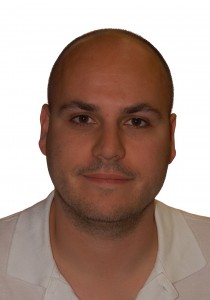
Degrees: MD, BSc
Position(s): Research Fellow and Clinical Associate, Clinician-Scientist, Sunnybrook Health Sciences Centre (Pending)
Research Bio: Dr. Roifman will be appointed a clinician scientist at Sunnybrook Health Sciences Centre. In addition to being trained in advanced cardiac imaging, he is also currently completing a M.Sc. in clinical epidemiology. His main research goal is to combine outcomes based epidemiology and imaging research, specifically by conducting comparative effectiveness research and through the assessment of novel imaging biomarkers. Further, he is interested in translational and clinical cardiac MRI research including post myocardial infarction remodeling, myocardial tissue characterization and the clinical assessment of novel sequences.

Degrees: BSc, MD, FRCPC, ABIM
Postion(s): Assistant Professor, Department of Medicine, University of Toronto, Medical Director, Cardiac Transplant Program and Director of Clinical Trials for the Multiorgan Transplant Program, University Health Network.
Research: Congestive heart failure; cardiac transplantation
Postion(s): Associate Professor, Department of Surgery, University of Toronto, Medical Director and Staff Surgeon, Division of Vascular Surgery, University Health Network, Senior Scientist, Toronto General Research Institute, Consultant Staff, Mount Sinai Hospital and The Hospital for Sick Children.
Research: Molecular regulation of cardiac gene expression: the role of MAP kinases.
S
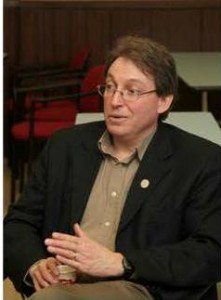
Degrees: PhD
Postion(s): Professor, Institute of Biomaterials and Biomedical Engineering; Professor, Department of Biological and Diagnostic Sciences, Faculty of Dentistry; Director of Physical Science Faculty in Techna at UHN/UofT
Research: Dr. Paul Santerre was the director of the Institute of Biomaterials and Biomedical Engineering (IBBME) from 2008-13, where >100 research engineers and scientists throughout the Toronto area are engaged in discovery and product development in the areas of neuroscience and sensory stimulation, biomaterials and tissue engineering, molecular systems biology and nanotechnology, as well as medical device and drug delivery system design. He is currently the Director of Physical Science Faculty in Techna at UHN/UofT. Dr. Santerre is an engineer who obtained his PhD in 1990 from McMaster University in the area biomaterials design for blood contacting systems. He was the lead material’s engineer on the artificial heart program at the University of Ottawa Heart Institute prior to coming to the University of Toronto in 1993. His research program (>150 peer review publications and >325 conference presentations and abstracts) is focused on investigating the relationship between polymers and bio-degradation processes in the body in order to advance the design of new materials for tissue engineering, implants and medi¬cal devices. He has over 60 patents and is the founder of Interface Biologics Inc, a University of Toronto biotech start-up with 20 employees developing catheters and drug-polymer coatings for medical devices. He is an International Fellow of Biomaterials Science and Engineering (FBSE) and in 2009 he became a Fellow of the American Institute for Medical and Biological Engineering. In March 2010 he received the Julia Levy Award from the Canadian Society for Chemical Industry for translation of knowledge to product, and most recently was appointed in 2011 as a fellow of the American Association for the Advancement of Science. In 2012 he was the recipient on the Natural Sciences and Engineering Research Council of Canada’s Synergy Award and was appointed to the Canadian Academy of Health Sciences in 2013.
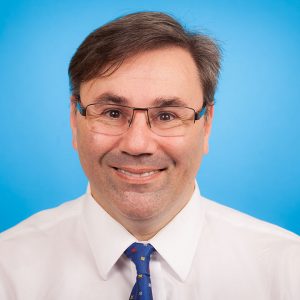
Degrees: MD, FRCPC, PhD
Positions: Clinician-Scientist and Associate Professor in Medicine, Division of Neurology, Department of Medicine, University of Toronto; Director, Center for Virtual Reality studies (CVR), Division of Neurology, Li Ka Shing Knowledge Institute, St Michael’s Hospital,
Research Interests: Stroke outcome, health services research, pharmacoeconomic and stroke therapy, quality of care, translating new emerging therapies into clinical practice, epidemiology of cerebrovascular disease
Research Activities: My current research focuses are Stroke Outcomes and Health Services Research. Specifically, I have looked at the domains of stroke care delivery, prevention, and improved stroke recovery. Both my research training and publications reflect my longstanding interests in these 3 areas. Ultimately, my personal goal is to identify innovative strategies which aim to improve access of care, stroke prevention, and reduce disability in stroke survivors.
Specifically, our team has looked at the domains of stroke care delivery, prevention, and improved stroke recovery. Both my research training and publications reflect my longstanding interests in these 3 areas. The first includes the assessment of how organized inpatient care affects stroke outcomes. We have developed and validated a risk score (called iScore) and a web tool to assist clinicians estimate clinical outcomes after a stroke. The iScore also showed to predict clinical response to thrombolysis (clot-buster medication) after an acute ischemic stroke. The second includes adherence to the guidelines and risk of stroke in selected populations. The last relates to a novel area: the use of virtual reality of stroke rehabilitation. More recently, we have taken it a step further by exploring the use of virtual reality with Nintendo Wii gaming technology in patients with recent strokes. We are also in the process of comparing different virtual reality systems.
To accomplish these tasks, I formed and led a working group on stroke outcome research involving many leading stroke researchers in Canada, and other specialists interested in stroke, called SORCan (Stroke Outcomes Research Canada). This has led to a series of publications, and others being submitted or in press. Our work has been highlighted in two summary reviews on ‘Advances in Health Policy and Outcomes’ published in STROKE Journal (Rudd et al. Stroke 2009;40;e301-e304 and Williams et al. Stroke 2010;41: e77-e80) and LANCET (Lancet 2011; 377: May 14). SORCan has the potential to be expanded and make worldwide contributions. Some of my success in these areas resulted from this productive network of colleagues and researchers in the field.
Our research program includes four main areas: stroke outcome research, stroke epidemiology, stroke & health policy, and new emerging therapies in cerebrovascular disease.

Degrees: PhD
Postion(s): Assistant Professor, Department of Molecular Genetics, University of Toronto Scientist, Program in Developmental and Stem Cell Biology, Hospital for Sick Children
Research: As a postdoctoral fellow, Dr. Scott was instrumental in developing a large-scale genetic screen for mutations affecting zebrafish (and vertebrate) cardiovascular development – one of the first efforts to uncover genetic modifiers of cardiovascular development. This led to his helping establish the first Zebrafish Facility at the Hospital for Sick Children. Dr. Scott’s current research is focused on using genetic and imaging tools in the zebrafish embryo to study the earliest molecular and cellular events associated with heart development. This allows modeling human congenital heart defects and heart failure and ultimately using these models to examine novel therapeutic approaches. Combining genetic and cell imaging approaches will help researchers better understand the developmental processes that regulate heart development and congenital heart defects, which should help inform future curative approaches to this significant constellation of diseases.
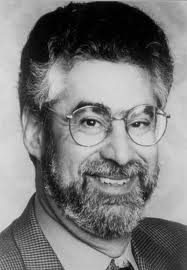
Degrees: BASc, ScD
Postion(s): University Professor, Department of Chemical Engineering and Applied Chemistry and Director, Institute of Biomaterials and Biomedical Engineering, University of Toronto.
Postion(s): Assistant Professor, University of Toronto; Head Obstetric Medicine, Mount Sinai Hospital; Staff Cardiologist, University Health Network
Research: Dr. Candice Silverside’s research is focused on adult congenital heart disease, pregnancy and heart disease, and echocardiography.
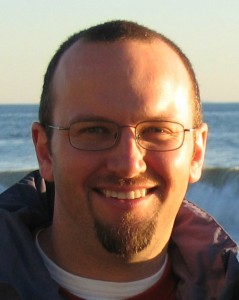
Degrees: PhD
Postion(s): Assistant Professor Canada Research Chair in Mechanobiology Mechanical & Industrial Engineering, Dentistry, and Institute of Biomaterials and Biomedical Engineering
Research: In many physiological and pathological processes, biomechanical forces provide important signals that regulate the phenotypic expression of cells. Ultimately, these mechanical signals combine with other signals from the cellular microenvironment to impact function at the molecular, cellular, tissue, and organ levels. Although the field of biomechanics has contributed significantly to our understanding of how mechanical forces regulate tissue function, our understanding at the cellular and molecular level of the integrated response of cells to combinations of mechanical and non-mechanical cues is much more limited. In order to predict and control the behaviour of cells for therapeutic applications, an improved understanding of the integrated mechanobiological responses of cells to their microenvironmental stimuli is required. Dr. Simmons’ group’s research addresses this fundamental issue, with focus on the cells that participate in the regeneration and pathology of skeletal and cardiovascular tissues.
Their specific areas of interest include stem cell mechanobiology and tissue engineering, heart valve mechanobiology and disease BioMEMS for high-throughput mechanobiology. The approach is highly interdisciplinary, integrating experimental and computational cell mechanics with state-of-the-art quantitative cellular and molecular biology. The interdisciplinary research is reflected in their affiliations, which include the Department of Mechanical and Industrial Engineering, the Faculty of Dentistry, the Institute of Biomaterials and Biomedical Engineering, and the Heart & Stroke/Richard Lewar Centre of Excellence.
Research interests:
– Biomechanics and mechanobiology, mesenchymal stem cells, tissue engineering, bone mechanobiology, heart valve mechanobiology, computational biomechanics.

Degree(s): PhD
Position(s): Assistant Professor, Departments of Surgery, University of Toronto
Scientist, Keenan Research Centre for Biomedical Science, St. Michael’s Hospital, Toronto
Research: My research is mainly focused on the role of DNA damage/repair and autophagy in the development of cardiovascular diseases. I am also interested in understanding the role of primary cilia in endothelial-to-mesenchymal transition and organ fibrosis.
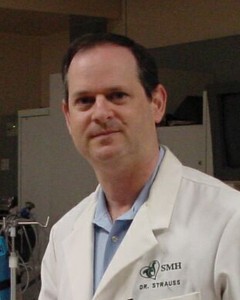
Degrees: MD, PhD
Postion(s): Senior Scientist, Molecular and Cellular Biology, Cardiac Program, Sunnybrook Health Sciences Centre Research Institute Professor, Department of Medicine and Laboratory Medicine and Pathobiology, University of Toronto Reichmann Chair, Cardiovascular Sciences, Sunnybrook Health Sciences Centre/University of Toronto Director, Interventional Cardiology Research, Sunnybrook Health Sciences Centre
Research: Dr. Bradley Strauss’ research focuses on various aspects of interventional cardiology, including evaluation of new coronary devices and imaging modalities and the pathophysiology and therapeutic approaches related to restenosis, the re-occurring narrowing of the blood vessels, after experimental and clinical interventions. His current area of interest is the pathophysiology of chronic total occlusions and novel therapeutic strategies for improving interventional results. Dr. Strauss leads a Canadian Institutes of Health Research (CIHR)-funded team of imaging scientists, vascular biologists and clinician-scientists in researching the assessment, treatment planning, intervention and evaluation of vascular occlusive disease. The goal of this research is to develop a comprehensive strategy for assessment, treatment planning, intervention and evaluation of success of patients suffering from chronic total occlusions. The long-term goal is to better manage occlusive vascular disease by integrating advanced imaging methods with new minimally invasive therapies, guided by a detailed understanding of underlying pathophysiology and health outcomes. They plan to reach this goal by first identifying patients who are most likely to benefit from improved minimally invasive therapies, then by establishing a detailed understanding of pathophysiology to inform more accurate patient characterization and more effective treatment development. Finally, they will develop and evaluate new tools for treatment planning and image-guided intervention. This will improve success and reduce risk in the effort to re-establish and maintain vessel patency.
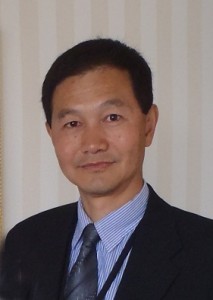
Degrees: MD, MSc, PhD
Postion(s): Assistant Professor (Primary: Surgery. Cross-Appointed: Physiology, and Pharmacology)
Research: Research in Dr. Sun’s lab is mainly focused on studying the role of ion channels in neuroprotection against cerebral ischemia and stroke, and identifying potential therapeutic targets for stroke. The main experimental approaches used in the lab include in-vivo animal models of human diseases in combination with molecular biology, advanced imaging (Laser Doppler Flowmetry/Imager, Laser Confocal microscopy and Laser Capture Microdissection), cell culture, biochemistry, electrophysiology, and functional and behavioural assessments. These approaches will allow them to study 1) study the cellular and molecular mechanisms underlying stress and ischemia/stroke, 2) to identify potential molecular targets that are responsible for the stress- and ischemia- induced cell injury, 3) to develop pharmacological strategies for cytoprotection against the cell injury. Our lab also has interest in channelopathy (ion channel diseases), and cardiac ischemia.
T

Degrees: MD, SM, MSc
Positions: Cardiologist, Clinician Investigator, Assistant Professor of Medicine
Research Focus: Cardio-Oncology, Echocardiography, Cardiac MRI
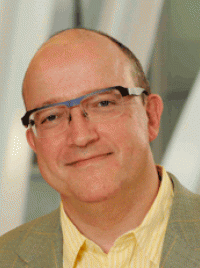
Degrees: PhD, MD, FRCSC
Positions: Head, Division of Neurosurgery; Professor, Departments of Surgery and Physiology
Research Focus: Stroke, Cerebrovascular Reserve, Hemodynamics, Myocardial Ischemia
Research: Research in my lab is centered around the cellular and molecular mechanisms of neuronal damage during stroke and other injuries such as epilepsy and trauma. Our focus is on calcium-regulated signaling pathways that cause neurons to die when injured. Our main contributions to this field has been the determination that acute damage to neurons is mediated by distinct signaling pathways that are specifically associated with certain types of cell membrane receptors and ion channels. We are working on elucidating these pathways, with the goal of finding rate-limiting steps that might be amenable to modulation by pharmacological or genetic means. The ultimate goal therefore, is to design rational therapeutic strategies for neuronal injury based on a concrete understanding of the molecular mechanisms that cause it.
Current projects:
1. We are working on mechanisms of coupling of Ca2+ influx through the NMDA subtype of glutamate receptors to intracellular second messengers that trigger neurotoxic signaling pathways. This project is centered around an understanding and modulation of the molecular organization of synapses, and the treatment of neuronal injury triggered by postsynaptic glutamate receptors.
2. We are working on mechanisms of anoxic cell damage that are independent of postsynaptic glutamate receptors. Current projects involve the elucidation of Ca2+-dependent intracellular signaling pathways that result in cell death in the absence of excitotoxicity (glutamate-receptor-mediated damage).
3. Using transgenic mice, we are working on the mechanisms of neurotoxicity triggered by non-NMD (AMPA-type) glutamate receptors in excitotoxicity.
The scope of each project includes studies in tissue culture and in-vivo models. Techniques most commonly used are neurophysiological, including Ca2+ imaging, confocal imaging, electrophysiology, molecular biology, and protein chemistry.
U

Degrees: MD
Postion(s): Staff Cardiologist, Division of Cardiology, Department of Medicine, Women’s College Hospital and Toronto General Hospital; Instructor of Medicine, Department of Medicine, University of Toronto
Research: Dr. Udell is a Cardiologist at Women’s College Hospital and the Toronto General Hospital, as well as a Clinician-Scientist at the University of Toronto. Dr. Udell graduated with an MD from the University of Toronto in 2003, a Masters in Public Health from Harvard in 2005, and completed Internal Medicine residency in 2007 at the University of British Columbia. He went on to complete a General Internal Medicine fellowship at University of Toronto in 2008, a Cardiology fellowship at Brigham and Women’s Hospital, Harvard Medical School in 2012, a Cardiology Clinical Trials research training with the TIMI Study Group, and a Clinical Epidemiology fellowship at the Institute for Clinical Evaluative Sciences in 2012. Dr. Udell’s research, which is published in high-impact journals including the NEJM, JAMA, JAMA Internal Medicine, and JACC, focuses on: a) preventing cardiovascular events in women, and b) discovering novel risk factors and therapies to improve the lives of patients with, or at risk of, cardiovascular disease. For his research, Dr. Udell received the 2013-2014 CIHR Institute for Health Services and Policy Research Rising Star Award.
V
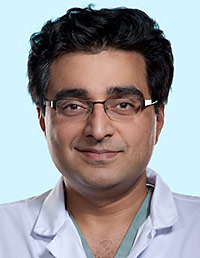
Degrees:
Postion(s): Scientist, Keenan Research Centre of the Li Ka Shing Knowledge Institute, St. Michael’s Hospital Associate Professor, Department of Surgery, University of Toronto Canada Research Chair in Atherosclerosis Director of Traineeship in Atherosclerosis, Division of Cardiovascular and Thoracic Surgery, St. Michael’s Hospital
Research: Dr. Verma oversees an active basic research program that focuses on the role of risk factors in endothelial function and vascular homeostasis. His research laboratory employs innovative basic and translational approaches to study mechanisms through which inflammatory cytokines are linked to vascular diseases. His laboratory is also actively studying the role of inflammation on stem cell responses to vascular repair and regeneration and has recently identified a novel target through which the bone marrow response to vascular injury can be attenuated. As well, Dr. Verma is involved in several ongoing provincial, national and international clinical trials with both medical and surgical implications for cardiovascular health. Several of the central themes of Dr. Verma’s research – vascular biology, endothelial dysfunction, atherosclerosis and cardiac function – bridge multiple disciplines, from nephrology to vascular biology, cardiac function to cancer, and/or focus on health issues with cross-cultural implications and applications.
W
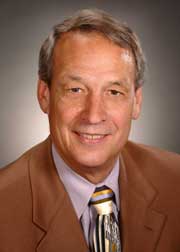
Degrees: BA, MD, FRCSC
Postion(s): Chair, Division of Cardiac Surgery, University of Toronto and Cardiac Surgeon, University Health Network
Research: Dr. Weisel’s research interests include myocardial protection, cell transplantation, tissue engineering, and gene and cell therapy.
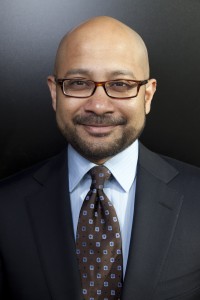
Degrees: MD, PhD, FRCPC
Postion(s): Associate Professor in the Department of Anesthesia and the Institute of Health Policy Management and Evaluation at the University of Toronto; Staff Anesthesiologist at the Toronto General Hospital; Scientist at the Li Ka Shing Knowledge Institute of St. Michael’s Hospital; Adjunct Scientist at the Institute for Clinical Evaluative Sciences
Research: Dr. Wijeysundera’s research program focuses on developing methods to reduce risks of medical complications following major noncardiac surgery, and evaluating the impact of variation in perioperative processes-of-care on surgical outcomes. His research, which has resulted in more than 120 peer-reviewed publications, has implemented a range of methodologies including prospective cohort studies, randomized controlled trials, and health services research. Dr. Wijeysundera holds a CIHR New Investigator Award, while his research program has been supported by the CIHR, Heart and Stroke Foundation of Canada, Ontario Ministry of Research and Innovation, and Ontario Academic Health Sciences Centres Innovation Fund. In addition to his research activities, Dr. Wijeysundera is a member of the American College of Cardiology and American Heart Association Task Force on Practice Guidelines, and is Co-Chair of the Choosing Wisely Canada initiative of the Canadian Anesthesiologists Society.
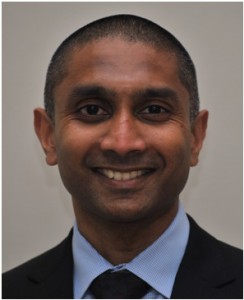
Degrees: MD, PhD
Postion(s): Assistant Professor, Departments of Medicine and Institute of Health Policy, Management and Evaluation, University of Toronto; Scientist, Sunnybrook Research Institute; Interventional Cardiologist, Schulich Heart Centre, Sunnybrook Health Sciences Centre
Research: Dr. Wijeysundera is an interventional cardiologist and clinician scientist at the Schulich Heart Center in Sunnybrook Health Sciences. He is an assistant professor in the Department of Medicine and the Institute for Health Policy, Management and Evaluation (IHPME). He is a graduate of the University of British Columbia, did specialty training in Internal Medicine and Adult Cardiology at the University of Toronto. He completed fellowship training at the Sunnybrook in Interventional Cardiology and a PhD in Clinical Epidemiology at the University of Toronto. His research program focuses on health technology assessments in cardiac disease, using decision analytic meodels which are populated and validated using real-world administrative databases. This is based at Sunnybrook Research Institute (SRI), the Toronto Health Economics and Technology Assessment (THETA) collaborative and Institute for Clinical Evaluate Sciences (ICES). In addition, his research program is interested in estimating accurate longitudinal costs associated with episodes of illness and changes in quality of life.
Postion(s): Scientist, Genetics & Genome Biology Program at SickKids Research Institute
Research: Dr. Wilson’s research is focused on hemostasis, thrombosis, inflammation, vascular biology, comparative genomics
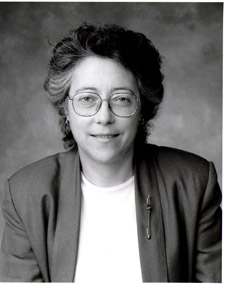
Degrees: CVMA, DVM, MSc, CVO
Postion(s): Professor, Department of Surgery and Physiology, Director, Cardiovascular Sciences Collaborative Program, University of Toronto, Scientific Staff, Department of Surgery, Hospital for Sick Children.
Research: Dr. Wittnich’s research examines the role of age, gender and sex hormones on myocardial pathology (hypertrophy, failure); developmental changes in myocardial intolerance to oxygen stress and its impact on congenital heart disease.
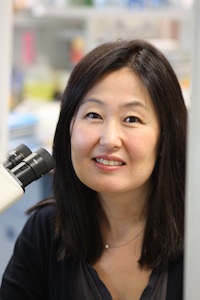
Degrees: MD, PhD
Postion(s): Associate Professor, Departments of Medicine and Medical Biophysics, University of Toronto; Scientist, Advanced Diagnostics, Toronto General Research Institute; Head, Division of Endocrinology and Metabolism, UHN/MSH
Research: The major research focus in the Woo laboratory is to elucidate molecular mechanisms that determine the pathogenesis of insulin resistance and type 2 diabetes, which are well known to increase the risk of cardiovascular disease. Their research interests include elucidating tissue-specific contributions that manifest in insulin resistance and atherosclerosis. This is particularly relevant given that the roles of many of the fundamental genes function in a highly context dependent and tissue-specific manner. The lab uses tissue-specific genetic engineering strategies in mice to examine the contribution of fundamental signaling molecules in specific tissues that contribute to whole body insulin resistance, diabetes, inflammation and atherosclerosis.

Degrees: Ph.D
Postion(s): Research Director, Heart and Circulation Program. Professor, Department of Medical Biophyisics, University of Toronto
Research: Dr. Wright’s research focuses in MRI, Cardiac Imaging, Image-guided intervention, myocardial characterization, and angiography.
X
Y
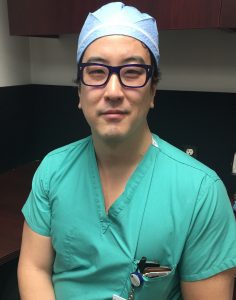
Degrees: MD PhD FRCSC
Position(s): Assistant Professor and Surgeon, Division of Cardiovascular Surgery, St Michael’s Hospital, University of Toronto
Research: Dr. Yanagawa’s clinical and research focus are valvular heart disease and surgical revascularization. He runs a cardiac surgical tissuebank for translational studies of the mechanisms of valvulopathy and ischemia-reperfusion injury. He is engaged in knowledge translation with the use of systematic review and meta-analyses in the areas of arterial revascularization and valve surgery. Finally, he helps to lead several prospective cardiac surgical trials under the Cardiolink umbrella.
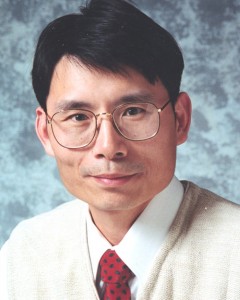
Degrees: PhD
Postion(s): Senior scientist, molecular and cellular biology, Sunnybrook Research Institute Associate professor, Laboratory Medicine and Pathobiology, faculty of medicine, University of Toronto
Research: Roles of proteoglycans in mediating cell activities
Proteoglycans are important members in the extracellular matrix (ECM). In the ECM, proteoglycans interact with other matrix molecules to play their functions. Proteoglycans have been demonstrated to play roles in regulating cell activities such as cell recognition, adhesion, migration, proliferation and tumorigenesis. Versican, a large chondroitin sulfate proteoglycan, is thought to play a critical role in condensation and chondrogenesis by regulating cell-substrate interactions. We are investigating the potential role of versican in mediating cell activities.
Dr. Yang is studying how versican G3 domain enhances tumour growth and angiogenesis. To do so, Dr. Yang will test the effect of fibronectin on G3-enhanced tumour growth, dissect the signals activated by versican G3 domain and fibronectin, and identify the binding sites of G3-fibronectin and study their effects on tumour growth. He will also investigate the role of the versican V1 isoform in cell transformation and tumour formation. He will identify the motif involved in cell transformation and tumour formation, isolate the potential binding proteins of the motif, and develop methods to inhibit cell transformation and tumour formation by targeting the V1 isoform. Dr. Yang’s group anticipates that data obtained from these studies will have implications for both basic and applied research. Their studies on the role of the G3-fibronectin interaction in tumour growth would be a significant contribution, and identification of the binding sites would lead to the development of agents to inhibit tumour growth. Isolation of potential binding partners of the CS domain of versican V1 isoform would open new avenues of research. Development of methods to inhibit cell transformation, and to inhibit tumour formation and growth is the important step towards gene therapy. Future studies could be aimed at exploiting the therapeutic implications of these findings.
Postion(s): Scientist in the Keenan Research Centre of the Li Ka Shing Knowledge Institute of St. Michael’s Hospital; Staff Physician, Medicine/Nephrology, St. Michael’s Hospital; Assistant Professor, Medicine, University of Toronto
Research: Dr. Yuen’s lab is interested in understanding novel mechanisms of fibrovascular injury in the kidney, using both cell and animal models of disease, with the goal of using the knowledge gained to develop innovative new therapies for kidney disease. Research projects span the spectrum from basic cell biology to clinical studies, including the investigation of cellular processes underlying fibroblast and endothelial cell behaviour, the testing of potential new treatments in animal models of disease, and the examination of structure-function relationships in patients with kidney disease.
